#there is a job opening for part time seller at a bookshop that is not too far away from my house
Explore tagged Tumblr posts
Text
is customer service work in a bookstore better than other customer service or am I deluding myself
#there is a job opening for part time seller at a bookshop that is not too far away from my house#i go to that shop A Lot and i like the vibe there#it's not too loud and there's usually a lot of tourists there so my English might be useful#on the other hand it's talking to people#idk. i could always try and then just quit i guess?#random
7 notes
·
View notes
Text
Nooks And Crannies - M. Sturniolo
a series
part one




Summary : You always seem to be somewhere in the bookstore Matt works at, never buying anything, just reading, and while Matt is technically not supposed to talk to customers for so long while he's on the clock, he can't help himself.
Warnings : none yet!
Word Count : 1048
Pairing : Matt Sturniolo/Reader (romantic)
A/N : a series from me!! what a shock!! i hope i can actually keep this going <3 i'm such a sucker for soft matt, so here is bookworm matt !

Matt sighed as he opened the door to The Ivy, but it wasn’t a sigh of dread.
It was one of relief, one of anxiety rolling off of his shoulders. He felt so lucky to have a job that he genuinely enjoyed and paid him enough to be happy and comfortable. His work really was like a second home for him. It was a smaller, yet gorgeous, bookstore combined with a coffee shop, and all of it really had a home owned feel, because they weren’t part of any corporate line. They paid better than the corporate line did, and because they were on a popular street downtown, they brought in a great amount of profit compared to some other smaller stores.
Matt was the type of person to cover anyone’s shift because he genuinely would love to be at the bookshop. The money was just a bonus for him. Matt was an organizer, someone who was neat and tidy, and the bookshop gave him the room to do that, and combine it with one of his favorite interests, reading. He had been working this job for almost three years, having started it as his full time job just after he had graduated from high school, and he couldn’t see himself ever wanting to leave. He and his brothers had a comfortable home with three combined incomes, and he was truly happy.
As he clocked in, he smiled at the customer patiently waiting to check out books, waving them over to his register. Checkout wasn’t his favorite, he preferred to be working between the aisles of books, but he did still enjoy it. He didn’t think that there was a single part of his job that he actively disliked, because it was very rare that he dealt with someone who didn’t want to be in there. That was one of his favorite things about working in the store that he did, because it was a form of retail, but it wasn’t really retail. Nobody was in there because they had to be, besides the workers. They were all in there because they wanted to be, and because of that, they were generally much nicer to the employees.
Matt easily helped the person buy their books, complimenting the choices they’d made. Matt had read just about all of the best sellers in the shop, and continued to pick up the new books as they came in. He always struck up a conversation with everyone he checked out, regardless of how tired he was, or if he was having a bad day. He found himself really enjoying getting to share thoughts on his favorite books, give recommendations, and still get to enjoy the benefits of being paid for it. Sometimes customers would come back while he was working, and they would get to talk about their favorite moments of books that they had both read.
Once the line behind the checkout had cleared out, many conversations later, many book recommendations given out, and happy customers leaving, Matt logged out of the register, letting a coworker take over to train someone new, and he went to go help unload more books. That was his favorite part, because he got to read the back of all of the books, see which ones interested him, and then because he was the one putting them on the shelves, he knew exactly where they were and could go buy them while he was off the clock. He had a rule. He never bought new books the day that they were delivered, no matter how much he really wanted to. Sometimes they could sell out very quickly, but he always waited at least one day before buying them, so that someone who didn’t work there and wasn’t there all the time like he was could get a chance at getting them.
The Ivy was a gorgeous little store, and it really felt like a cozy little oasis in the middle of a busy downtown area. He loved all of the small, almost hidden, spots in the store, near windows in the back. There was one space that was hidden by a sliding bookshelf, and there was a handle there, but Matt had never seen anyone figure it out. They often pulled on it instead of sliding it, and when it didn’t move, they assumed that it was simply decorative. Matt always stayed there during his break, as the bookshelves surrounding that little nook were double-sided, and he had more books to pick up and read.
The Ivy drew people in, and once you sat in one of the comfortable seats by the window, you’d lose track of time, but it wouldn’t matter anyways, because you’d never want to leave. And no, Matt was definitely not speaking from experience. As much as Matt loved to help people find things that they would enjoy, stocking shelves really gave him some quiet time to just focus on his work and enjoy his surroundings. Matt was a people watcher. While he was stocking shelves, people simply ignored his presence. He didn’t take this personally, people often overlook the employees. This worked very well for him, as he got to observe people.
He saw all kinds of people. He saw couples who came in and bought books for each other, people who came in with headphones and a coffee and walked up and down the aisles, reading the backs of book after book, the little kids who came in and pored over the stickers and the coloring books, and the older people who flip through the magazines and never actually buy anything, but they walked out with a smile on their face. There were the regulars at the coffee shop that Matt saw walk through the bookstore portion, and the people who hung out over there as well. There weren’t a lot of regulars, but Matt tried his best to take notice of every person who came into the store.
It wasn’t until Matt went to take his break that he realized he had missed someone, which wouldn’t be a shock to him normally, as the place was usually quite busy. But this time, as he slid the bookshelf to the side, there was someone already sitting in his usual chair.

taglist : @blahbel668 @mattsgirlfrieeend @69isabella69 @mayhem-72 @iculdstealurgf @iluvm4ttsturni0l0 @sturnioloslife @heartsforkarina @nervousrebelglitter @sturniclo @elliegrace-7 @mattsturnioloisbae @strnilo @dazsha19 @patscorner @hailee22sstuff @tworosesblackthorn
~ if you'd like to be added to my taglist, click here!
~ my inbox is open, come chat!!
#matt sturniolo#sturniolo triplets#sturniolo#matt sturniolo x reader#matt#matt sturniolo x you#matthew sturniolo smut#matthew sturniolo#matt sturniolo imagine#matt sturniolo smut#matt x y/n#matt x reader#matthew sturniolo headcannons#matthew sturniolo x y/n#matthew sturniolo oneshot#matthew sturniolo fanfic#matthew sturniolo imagine#matthew bernard sturniolo#matthew sturniolo x reader#matthew sturniolo x you
211 notes
·
View notes
Text
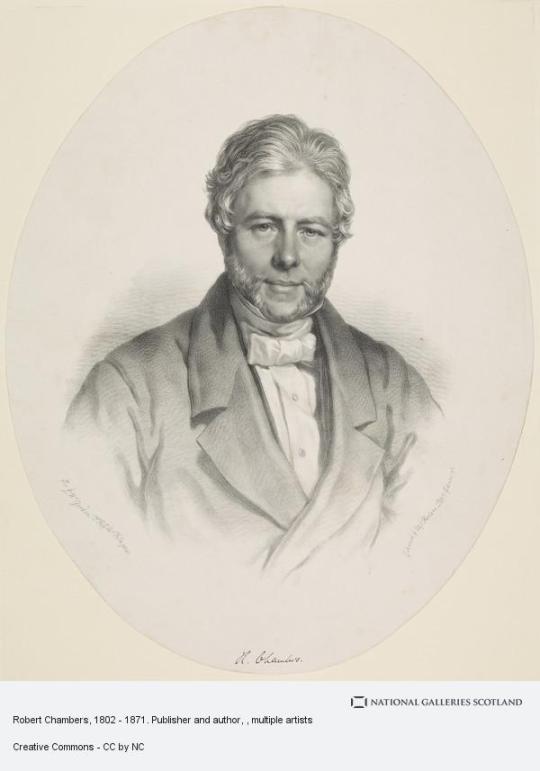
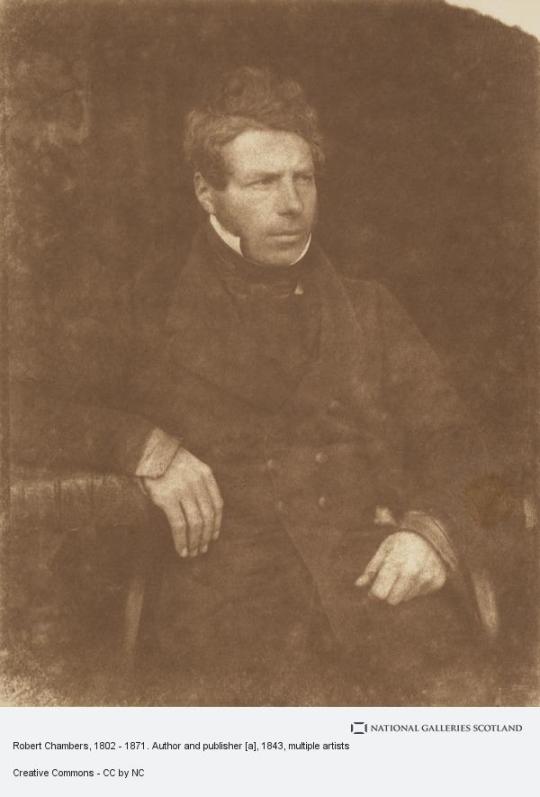

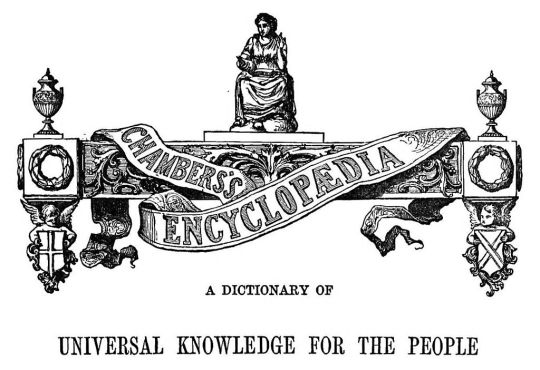

On 10th July 1802 Robert Chambers, the Scottish naturalist and publisher, was born.
I wonder how many of you out there have owned a Chambers dictionary? We always had one in our household growing up, mainly for checking words while playing scrabble.
Two brothers, Robert and William Chambers founded the company that published the book also played a major part in the growth of 19th century writing and publishing in Scotland and the development of the city of Edinburgh.
William and Robert Chambers were part of a relatively prosperous Borders mill owning family with deep roots in Tweeddale. William the elder was born in 1800 and his brother Robert on this day, two years later.
Their father lost his business in 1814 and the family upped sticks and moved to Edinburgh. Life in the capital began in a tenement flat in Nicholson Street. It was a “second rate street home to other families with limited means.” They remained there for less than a year before moving to an even poorer area of the city.
William took up a job as an apprentice in a booksellers, his early jobs being cleaning and lighting the fire, preparing the oil lamps and running errands, but it put him in god stead for his oncoming years. He took lodgings in The West Port, his brother later joining him, but was jobless, William helped support his sibling, he then suggested Robert, using the last few books from his father’s house in Peebles open a small bookshop in Leith, the family business was born. Within a short time William also opened a bookshop close to his brother.
A small printing press was acquired and together the brothers turned to publishing. They printed, bound and published a range of books including 750 copies of the Songs of Robert Burns, a best-seller in 19th century Edinburgh.
It was perhaps inevitable that both would turn to writing and together they wrote and published the Kaleidoscope a fortnightly periodical. Half a century later William reflected on the struggle to produce the journal. “The mechanical execution of the literary serial sorely tested the powers of my little press which received sundry claspings of iron to strengthen it for the unexpected duty.” Although the Kaleidoscope didn’t last long, life was getting better. It was, “a small trial of one’s wings.”
Thanks to a commission from Walter Scott William and Robert moved home again as their business continued to develop. By 1832 the first edition of the Chambers Edinburgh Journal was published. It was an immediate and unprecedented success with 30,000 copies sold in Scotland and a further 20,000 in England. As well as publishing pieces by Walter Scott between 1879 and 1895, the magazine published 3 short stories and 1 article written by Arthur Conan Doyle. Initially Robert was only a contributor but after the 14th issue he became joint editor and W and R Chambers was founded.
I really should only be covering Robert in this post, but I have to tell you a bit about William, who rose to become Lord Provost of Edinburgh, in that position he helped save the life of a stray dog that was going to be rounded up and destroyed as he never had a license. Hearing of the poor dog William himself paid for the license, a collar for the dog and feeding bowl that can still be seen in The Museum of Edinburgh. Without this act of kindness we might not know the extraordinary tale of Greyfriars Bobby!
Anyways, back to we brother Robert. In 1844 Robert published, anonymously, the Vestiges of the Natural History of Creation, 15 years before Darwin’s Origin of the Species. It received very mixed reviews. One said that, “there was a fair chance of poisoning the fountains of science and sapping the foundations of religion.” Another took an opposing view by saying the book was like a, “breath of fresh air to workmen in a crowded factory.”
William and Robert Chambers achieved much in their lives but perhaps their greatest satisfaction came from the purchase of their Scottish Borders home 40 years after their father had been forced to give it up.
8 notes
·
View notes
Text
prussia x reader: trouvaille
Hello, Lovelies~ Had an old plot bunny that I decided to hunt down again, and embellished it into something a bit more coherent. Kind of long, but I hope you enjoy!

Gift giving could be such a chore sometimes.
There was always the risk that the very thing you thought someone would like was already part of their collection, that they wouldn't actually like it, and there was always, always the fear of never finding the perfect gift.
But Luck was on your side; you knew exactly what to get.
For weeks, your best friend had been reading their way through an obscure book series, one of those series that had a fantastic premise, but had been quickly overshadowed and forgotten in the wake of New York Times Best Sellers.
They had found the first three books by chance in a free "library"- a small, weatherproofed bookshelf constructed by a local after-school group in a nearby park- several months prior. They fell in love with the series, and had spent the last few weeks scouring the internet in vain for a copy of the final installment.
Which was what had led you here.
Ernst & Young Bookshop was one of those ancient bookstores that boasted a custom wooden sign, towers of used, vintage tomes on mismatched shelves, and several floors, all dedicated to different genres. An old stained glass window made the front door stand out, but the shop was tucked so far away from the main street that it was still easily overlooked and forgotten. It also didn't help that Mr. Young refused to even create so much as a Facebook page, only conducting his operations via telephone or in-person.
The man was damn good at his job though, leaving a voicemail not even a full two days since you had made your request that he had, in fact, been able to find a copy of the book, and it was already waiting for you to pick up.
The door was surprisingly easy to open for how much it screeched in protest, a small bell dingling in its wake, making sure the entire world knew you were here.
All-too-familiar-a-face, you simply called out a quick hello to the shuffling in the office, smiling when you heard Ms. Ernst call out a chipper "Salutations!" in return.
Since acquiring the shop back in the ‘90s, Mr. Young had always kept a small shelf on the front desk- salvaged from a haunted hotel, he once dramatically confided- for special orders, specifically meant for customers to review their orders before deciding if they truly wanted to purchase them. You were pleased to see your order sitting front and center, an almost picture-perfect copy of the book waiting for pick up.
"I'm going to browse for a bit, Ms. Ernst," you called lightly, unsure and uncaring if she had heard you. She knew you would get her attention when you were ready, so you confidentially moved to scour the "New Arrivals" in the next room.
Several minutes had passed, and you thought nothing of the opening door in the front room, of the familiar tinging of the bell and the heavy footfall of boots. Another customer, moving around the room as quietly as the ancient, creaking heartwood would allow. You heard an unfamiliar voice- masculine- rumble out a hello to Ms. Ernst's familiar tinkling greeting, but soon lost interest again as you skimmed the paperback in your hands.
The footfalls echoed through the building, a familiar weight and pattern you were already learning to recognize. You couldn't help smiling to yourself, happy to know you weren't the only person book-browsing this early in the morning.
He was slowly making his way into the same room as you, moving around the staircase that led downstairs to the Children's Room and the steps which would lead upstairs to Nonfiction, Poetry, and Local History. His movements caught your attention, and you spared a quick glance his way, catching a glimpse of blue jeans, a leather jacket, a beanie, and glasses. You didn't notice much more than that, turning back to your book, and, having skimmed it for more than five minutes with no desire to put it down, gently closed it and tucked it under your arm.
You felt your first flicker of alarm when you noticed your reservation was no longer at the front desk. Ms. Ernst was behind the counter now, hunched down and rearranging something inside the small shelves that lined its interior, and you waited a moment before bothering her.
Maybe she had already wrapped it for you; they knew it was meant to be a gift.
But Ms. Ernst, upon finally righting herself and meeting you face-to-face, seemed just as puzzled as you were. “Didn’t you have a reservation, dear?”
“I thought you had it.”
Mutual confusion morphed into a mutual hunt around the counter, wondering if perhaps the book had maybe fallen into one of the other piles without her realizing. But it was to no avail; the book was gone.
“It couldn’t have gone far, dear. I saw it just this morning!”
A passing thought, a hunch really, had you lifting a finger in a “one second” gesture. “I think I know where it might be.”
Following your instincts, you were soon back in the New Arrivals, quietly approaching the other customer, desperately trying to think of how you were going to do this.
“Excuse me?”
There was no reaction, his back to you. You tried one more time, voice a bite firmer and stronger. "Excuse me, sir?"
He was taller than you thought, his posture straightening when he realized you were addressing him. You were close enough now to make out the white hair poking out from under his hat, the worn patches of his jacket. You were startled when he finally turned around to face you, scarlet eyes meeting yours from behind black-rimmed glasses.
His gaze was unfocused, thoughts likely still caught up in the words he had been reading just a moment ago. Not wanting to risk seeming impolite, you offered your kindest smile, tried to keep too much of your awkwardness from shining through.
"I am so, so sorry to bother you, but I think you might have my book?"
He made a strange expression, his eyes flickering down for a moment as he sized you up, eyebrows finally drawing together in confusion. "What?"
Oh, this was embarrassing.
You softly huffed at your own awkwardness and began again. “My reservation is missing. I was wondering if maybe you had picked it up on accident?”
His expression was indiscernible, but he offered a shrug, passing you his basket to rifle through. There were at least a dozen books in there already, making your balancing act of holding the basket in one arm and sorting through his collection all the more difficult.
“Wait. Lemme-”
As if he had heard your panicked thoughts, he was suddenly close again, holding the basket for you, freeing up one of your hands. You offered a thankful smile, digging deeper into the basket.
You saw a familiar green cover at the very bottom, a silver etching that you had definitely seen before.
Ah lo and behold: the renegade novel.
Tugging it out, you crowed in delight, relieved that your reservation card was still inside, only fallen so much into the pages that it was impossible to see while the book was closed.
You placed the other books back in his basket, wincing when you noticed his expression. “I’m-”
“I’m sorry!” You spoke at the same time, though his voice was far, far louder than yours. He stepped back a couple steps, guilt and awkwardness clearly written across his features now. “I didn’t realize this was being held for someone. I thought it’d be perfect for my brother’s birthday.”
You felt your heart clench for a moment, then smiled. “Funny enough, I’m actually getting this for my friend’s birthday.”
An unexpectedly cheeky grin was suddenly creasing his lips, a playful twist of his eyebrows following suite. “Great minds think alike, eh?”
And just like that, all awkwardness was gone, a smile of your own blooming beyond your control, the compliment sinking deep beneath your skin. “Seems so.” Offering a nod, you lifted your reclaimed book in acknowledgement, ready to move to the counter and finish your order. “Thank you so much for returning this.”
He waved you off with a laissez-faire smile, already perusing some of the titles over your shoulder. “No problem. I’ve got time to find something else.”
He was already moving along, going around you and pulling down a thicker tome from the top shelf, one with a thick blue cover and pages with painted edges. And you knew you should head out; you were already here way longer than you should have been. But as you lingered by the staircase, you found yourself turning back to him, offer tumbling out before you could think better of it.
“Can I help you find something else for him?”
His eyebrows were furrowed again, and he only half-looked away from his book, studying you carefully. This wasn’t a normal thing for you, but you couldn’t just walk away like that. And by his expression, by the way he couldn’t quite seem to settle on one expression, you knew it wasn’t normal for him, either.
It was another moment of being pinned under the careful study of scarlet eyes- distinct even from this far away- before he was grinning again, right shoulder coming up in a half shrug, book joining the collection in his basket. “What the hell; why not?”
Nearly an hour had passed, and Gil- as he had introduced himself while trying to squeeze into a reading nook on the landing of the third floor- had flipped through every book available about Law and Engineering, spent a good ten minutes distracted by the Philosophy section, took a quick detour down to the Children’s Room, and had finally landed in Mythology.
It was your favorite room in the entire building, truth be told. It featured several old armchairs, and homemade sun catchers hung from the ceiling, shards of blue and yellow and pink casting colorful refractions all along the vines which a previous shopkeeper had painted onto the walls back in the 1940s.
Gil’s younger brother- Fred, you thought he had said at some point during your scraps of rushed, surprisingly playful (and goodness gracious: flirtatious) conversations- was a bit of a collector, especially of obscure legends and myths.
And after a good twenty minutes, you finally found it.
It was a fairly average sized book, its cover blending in easily among the others. But a second glance had you tugging it carefully from the shelf, fighting a spark of surprise when you noticed the cover was really a deep burgundy, not the dingy brown you had assumed. It had likely been there for several years, perhaps a castaway shelved by one of the many students who worked here part-time.
Golden leaves bordered the front cover, stems connecting across the spine, before continuing their embellishment on the back. The title glistened, the same golden paint shimmering in the sunshine. You flipped through the pages as carefully as possible; the tag on the first page listed a publication date of 1837. Only adding to its whimsy, you were delighted to find watercolor illustrations painted on the pages between each chapter, with small descriptions written by the artist.
It was perfect.
A few moments’ consideration from your fellow bibliophile was all it took for him to agree.
You were almost disappointed that your time together was coming to an end, but kept that discontent at bay as you both headed back downstairs, bound for the counter again.
You insisted he go first; his collection had been fluctuating all morning, but in the end he still had at least five more books than you, and his momentary distraction gave you enough time to silently plan your goodbyes.
A goodbye which was apparently still unneeded just yet as Gil was immediately turning around to you once more, picking up the conversation thread right where he had left it, your eyes rolling in amusement.
Ms. Ernst gave you a small smirk as she shot him a glance, her eyebrow lifting when she once more turned her attention to you. You offered the smallest shake of your head, abandoned when he said something so incredibly dense that you couldn’t repress the need to scoff at him, shooting him a derisive look.
Gil had taken to leaning against the counter, elbow propped up, chin resting in his palm. There was a smug grin on his face, and you knew he had intentionally said such a stupid thing just to get your attention.
You narrowed your eyes in mock annoyance, before turning your attention to digging out your wallet, counting out the cash for your order. Gil’s voice still interrupted your focus though, keeping you half-distracted. “I was thinkin’.”
“Uh oh,” you replied with a teasing tone, passing a few bills over the counter. From the corner of your eye, you caught Gil sticking his tongue out at you in response before continuing his thought.
“Since I almost spirited away your book earlier, and you kind of saved my ass from Friedrich’s wrath..."
You raised an eyebrow, unable to fight your smile as you glanced his way, humming for him to continue.
He was smiling again, though this was something a bit softer than the teasing grin he had been wearing most of the morning. "How's lunch sound? My treat."
Ms. Ernst shot you a conspiratorial wink as she handed you your change from the antique register, and, try as you might, you couldn't stop your smile from growing even brighter as he walked ahead of you, soon holding the door for you, playfully bowing as you passed.
What the hell; why not?
"A gentleman and a scholar? How can I refuse?"

Thanks for reading!
#one day i shall actually write a bit more of an obnoxious gil but that day is not this day#prussia x reader#aph prussia#hws prussia#hetalia prussia#readerfic#gilbert beilschmidt x reader#aph gilbert beilschmidt#hws gilbert beilschmidt#hetalia gilbert beilschimidt#trouvaille is a french term that loosely describes the accidental chance discovery of something wonderful#very loosely based off an actual experience i've had ^_^;;;#long post#hetalia x reader#aph x reader#hws x reader#reader insert#bookstore#bookshop#does this count as a meet cute???#original characters#oc#aph holy rome#hetalia holy rome#hws holy rome#because friedrich deserves more love imho#thanks for reading lovelies!#will have more requests published soon~#hope y'all are well!
92 notes
·
View notes
Text
The Secret Life Of Writers by Guilluame Rosso
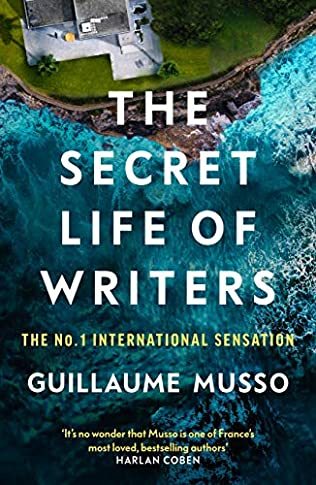
The Secret Life Of Writers
By Guillaume Musso
Translated by Vineet Lal
Weidenfeld & Nicholson (Orion)
Publication Date: 22 July 2021
Despite being a regular reader of French crime fiction this is actually the first novel I have read by Guillaume Musso. What I didn’t know until the release of The Secret Life Of Writers is that actually Musso is currently the bestselling crime writer in his native France. When that competion includes the likes of Michel Bussi and Pierre Lamaitre, it makes it a real achievement.
I believe that this is the fourth book released in the UK written by Guillaume Musso, although I see there have been different titles released in different English language markets. The most recent title released in the UK was The Reunion and The Secret Life Of Writers is the first book of Musso’s to be translated by Edinburgh based Vineet Lal (who has previously translated Grégoire Delacourt). Lal has stepped into the large shoes of the highly esteemed Frank Wynne.
Set on the fictional Isle of Beaumont set on the French Mediterranean coast close to Toulon, the story opens through the first person narrative of aspiring young author Raphaël Bataille who is on the trail of enigmatic writer Nathan Fawles. Twenty years earlier Fawles announced his retirement as an author after three successful and highly influential novels and moved to a remote location on Beaumont. Bataille has had the manuscript for his first novel rejected by several different publishers and so he decides to apply for a job in the island’s book shop with the hope of getting close to the author and receiving advice from him. On his arrival he discovers an island that maybe isn’t unwelcoming but is ill prepared for strangers with no hotels and accommodation in private houses very rare. The book shop owner Audibert warns our narrator that attempting to visit Fawles could well put him at risk at getting shot. Undeterred Bataille finds that risk was very real. Yet it transpires Bataille is not the only person looking to quiz Nathan Fowles as a young Swiss journalist Mathilde Monney is also trying to get close to him and this is where the writer does find some use in taking to the eager young man.
The island is also ill-equipped for police investigations and when word reaches the village that a body has been found on a beach at the sound of the island, Bataille accompanies a police man has he drives his three wheeling Piaggio Ape as fast as he can (around 40kmph) along the narrow road that follows the rugged coast down the island. It is a clear demonstration of how Musso can visually make a serious situation appear quite farcical.
The discovery leads to a blockade of the island by the mainland police. When the body is examined it is found she must have been stored in a large freezer somewhere on the island. Her identity is revealed as part of a Bonnie and Clyde duo which used to operate around Évry, Essonne south of Paris, it becomes clear that the roots of this go far beyond Beaumont.
The unravelling of these mysteries and hidden secrets from the past has emerged from entirely different parts of the world and it is truly a pleasure to read them all unfold. Many of the revelations transpire during a dangerous duel between Fawles and Monney. Musso isn’t afraid to break the rules when it comes to his narrator as well. Such is the skill and deceptive writing skills of Musso that a story that initially appears to be a cosy crime story in an idyllic location with amusing dialogue actually recalls back to dreadful crimes during the darkest episodes in recent European history.
Vineet Lal’s expressive translation of Musso’s dialogue is captivating and these are the real instances in the book where the humour of the story is displayed. This is particularly apparent when Musso has something to say about the book publishing business. The island’s bookshop is very old fashioned only stocking what is termed “literature.” The aloof book seller Audibert is in Bataille’s eyes setting himself “up like a judge… to decide what was or wasn’t literature felt like pretension of the highest possible order.” He even claiming that France has less than five thousand real readers!
Fawles bluntly gives Bataille advice: “if you think writers have the same moral virtues as they give their characters, then you’re really naïve. And even a bit thick!”
He also warns him that “being a writer is the least glamorous think in the world, you live like a zombie, all alone and cut off from everyone else… You spend your nights sweating blood and tears to churn out a sentence that three-quarters of your readers won’t notice – the handful of readers that you have, that is.”
The Secret Life Of Writers is a thoroughly enjoyable read and I would strongly encourage anyone with a taste for crime or European fiction to read it. Guilluame Musso effortly blends suspense, intrigue, tension and humour with strong characterisations and a real sense of setting. He deserves to be better known in English language territories. I have already bought The Reunion and anticipate reading it soon.
Just to add, there was a little bit of personal resonance for me as back in 1998-2000 I was working in the town of Évry which is referred to several times in the book and during that time I took a trip to Toulon where I visited the Isle of Porquerolles which served as inspiration for Musso for Beaumont just about the time that Fowles was supposed to have moved there.
0 notes
Link
Corporate Leaders Urged to Wade Into Debate Over Voting Laws: Live Updates Here’s what you need to know: Ken Frazier, the Merck chief executive, has called on corporate executives to publicly state their support for broader ballot access.Credit…Mike Cohen for The New York Times More than 100 corporate leaders held a conference call over the weekend to discuss what they should do, if anything, to shape the debate around restrictive voting laws under discussion across the United States. Snap polls during the call suggested that most of the participants favor doing something, though what that would be isn’t yet clear, the DealBook newsletter reports. The voting-rights debate is fraught for companies, putting them at the center of an increasingly heated partisan battle. Ken Chenault, the former American Express chief, and Ken Frazier, the Merck chief executive, urged the executives on the call to publicly state their support for broader ballot access. The two had gathered 70 fellow Black leaders to sign a letter last month calling on companies to fight bills that restrict voting rights, like the one that recently passed in Georgia. A survey this month of 1,221 Americans shows support for companies wading into politics. The data, provided by the market research firm Morning Consult, was presented to the business leaders on the call, which was convened by Jeffrey Sonnenfeld, a professor at Yale. Here are some highlights: Fifty-seven percent of Americans think companies should cut back on donations to elected officials who are working to limit voting rights. Nearly three-quarters of respondents said that the government should ensure equitable access to voting locations. More than half of Americans said they were more likely to buy from companies that promote certain social causes, including racial equality and civil rights, although support among Democrats was stronger than among Republicans on many of these issues. Among the handful of issues that would make Republicans less likely to buy from a company were support for the Black Lives Matter movement, abortion rights, stricter gun control and L.G.B.T. rights. In a separate survey of 2,200 Americans by Morning Consult, 62 percent of “avid” fans said they supported Major League Baseball’s decision to move the All-Star Game from Georgia in response to the state’s new voting restrictions. Support was lower among all adults (39 percent), but if the league was worried about the effect on its most dedicated fans, this is an important finding. “We’re not talking about how the caregiving crisis is impacting the learning loss for kids and how it’s disproportionately impacting girls and girls of color,” said Reshma Saujani, the founder of the nonprofit group Girls Who Code.Credit…Amr Alfiky/The New York Times A year into the pandemic, there are signs that the American economy is stirring back to life, with a falling unemployment rate and a growing number of people back at work. Even mothers — who left their jobs in droves in the last year in large part because of increased caregiving duties — are slowly re-entering the work force. But young Americans — particularly women between the ages of 16 and 24 — are living an altogether different reality, with higher rates of unemployment than older adults. And many thousands, possibly even millions, are postponing their education, which can delay their entry into the work force. New research suggests that the number of “disconnected” young people — defined as those who are in neither school nor the work force — is growing. For young women, experts said, the caregiving crisis may be a major reason many have delayed their education or careers. Last year, unemployment among young adults jumped to 27.4 percent in April from 7.8 percent in February. The rate was almost double the 14 percent overall unemployment rate in April and was the highest for that age group in the last two decades, according to the Bureau of Labor Statistics. At its peak in April, the unemployment rate for young women over all hit 30 percent — with a 22 percent rate for white women in that age group, 30 percent for Black women and 31 percent for Latina women. Those numbers are starting to improve as many female-dominated industries that shed jobs at the start of the pandemic, like leisure, retail and education, are adding them back. But roughly 18 percent of the 1.9 million women who left the work force since last February — or about 360,000 — were 16 to 24, according to an analysis of seasonally unadjusted numbers by the National Women’s Law Center. At the same time, the number of women who have dropped out of some form of education or plan to is on the rise. During the pandemic, more women than men consistently reported that they had canceled plans to take postsecondary classes or planned to take fewer classes, according to a series of surveys by the U.S. Census Bureau since last April. “We’ve focused in particular on the digital divide and the impact of that on the learning loss for kids,” said Reshma Saujani, founder of the nonprofit group Girls Who Code. “But we’re not talking about how the caregiving crisis is impacting the learning loss for kids and how it’s disproportionately impacting girls and girls of color.” All of this can have long-term knock-on effects. Even temporary unemployment or an education setback at a young age can drag down someone’s potential for earnings, job stability and even homeownership years down the line, according to a 2018 study by Measure of America that tracked disconnected youth over the course of 15 years. Decorating a restaurant before its reopening on April 12.Credit…Andrew Testa for The New York Times For the past year, the British economy has yo-yoed with the government’s pandemic restrictions. On Monday, as shops, outdoor dining, gyms and hairdressers reopened across England, the next bounce began. The pandemic has left Britain with deep economic wounds that have shattered historical records: the worst recession in three centuries and record levels of government borrowing outside wartime. Last March and April, there was an economic slump unlike anything ever seen before when schools, workplaces and businesses abruptly shut. Then a summertime boom, when restrictions eased and the government helped usher people out of their homes with a popular meal-discount initiative called “Eat Out to Help Out.” Beginning in the fall, a second wave of the pandemic stalled the recovery, though the economic impact wasn’t as severe as it had been last spring. Still, the government has spent about 344 billion pounds, or $471 billion, on its pandemic response. To pay for it, the government has borrowed a record sum and is planning the first increase in corporate taxes since 1974 to help rebalance its budget. By the end of the year, the size of Britain’s economy will be back where it was at the end of 2019, the Bank of England predicts. “The economy is poised like a coiled spring,” Andy Haldane, the central bank’s chief economist said in February. “As its energies are released, the recovery should be one to remember after a year to forget.” Even though a lot of retail spending has shifted online, reopening shop doors will make a huge difference to many businesses. Daunt Books, a small chain of independent bookstores, was busy preparing to reopen for the past week, including offering a click-and-collect service in all of its stores. Throughout the lockdown, a skeleton crew “worked harder than they’ve ever worked before, just to keep a trickle” of revenue coming in from online and telephone orders, said Brett Wolstencroft, the bookseller’s manager. “The worst moment for us was December,” Mr. Wolstencroft said, when shops were shut in large parts of the country beginning on Dec. 20. “Realizing you’re losing your last bit of Christmas is exceptionally tough.” He says he is looking forward to having customers return to browse the shelves and talk to the sellers. “We’d sort of turned ourselves into a warehouse” during the lockdown, he said, “but that doesn’t work for a good bookshop.” With the likes of pubs, hairdressers, cinemas and hotels shut for months on end, Brits have built up more than £180 billion in excess savings, according to government estimates. That money, once people can get out more, is expected to be the engine of this recovery — even though economists are debating how much of this windfall will end up in the tills of these businesses. Monday is just one phase of the reopening. Pubs can serve customers only in outdoor seating areas, and less than half, about 15,000, have such facilities. Hotels will also remain closed for at least another month alongside indoor dining, museums and theaters. The next reopening phase is scheduled for May 17. Over all, two-fifths of hospitality businesses have outside space, said Kate Nicholls, the chief executive of U.K. Hospitality, a trade group. “Monday is a really positive start,” she said. “It helps us to get businesses gradually back open, get staff gradually back off furlough and build up toward the real reopening of hospitality that will be May 17.” Part of Saudi Aramco’s giant Ras Tanura oil terminal. The company said it would raise $12.4 billion from selling a minority stake in its oil pipeline business.Credit…Ahmed Jadallah/Reuters Saudi Aramco, the national oil company of Saudi Arabia, has reached a deal to raise $12.4 billion from the sale of a 49 percent stake in a pipeline-rights company. The money will come from a consortium led by EIG Global Energy Partners, a Washington-based investor in pipelines and other energy infrastructure. Under the arrangement announced on Friday, the investor group will buy 49 percent of a new company called Aramco Oil Pipelines, which will have the rights to 25 years of payments from Aramco for transporting oil through Saudi Arabia’s pipeline networks. Aramco is under pressure from its main owner, the Saudi government, to generate cash to finance state operations as well as investments like new cities to diversify the economy away from oil. The company has pledged to pay $75 billion in annual dividends, nearly all to the government, as well as other taxes. Last year, the dividends came to well in excess of the company’s net income of $49 billion. Recently, Aramco was tapped by Crown Prince Mohammed bin Salman, the kingdom’s main policymaker, to lead a new domestic investment drive to build up the Saudi economy. The pipeline sale “reinforces Aramco’s role as a catalyst for attracting significant foreign investment into the Kingdom,” Aramco said in a statement. From Saudi Arabia’s perspective, the deal has the virtue of raising money up front without giving up control. Aramco will own a 51 percent majority share in the pipeline company and “retain full ownership and operational control” of the pipes the company said. Aramco said Saudi Arabia would retain control over how much oil the company produces. Abu Dhabi, Saudi Arabia’s oil-rich neighbor, has struck similar oil and gas deals with outside investors. Jerome Powell, the Federal Reserve chair, said the economy was at an “inflection point.”Credit…Pool photo by [PLEASE FILL IN] Global stocks drifted lower from recent highs on Monday ahead of a batch of first-quarter earnings reports. The S&P 500 was set to open 0.4 percent lower, futures indicated, after reaching a record high on Friday. Most European stocks indexes fell. The Stoxx Europe 600 also declined from a high reached on Friday. The index was 0.2 percent lower on Monday, with energy and airline stocks among the companies that fell the most. The FTSE 100 in Britain was down 0.2 percent. Stocks have recently been propelled higher by expectations that the global economy will recover strongly from the pandemic this year. Much of the impetus is expected to come from the United States, where trillions of dollars are being spent on various economic recovery packages. On Sunday, Federal Reserve chair, Jerome H. Powell, said the economy was at an “inflection point” and on the cusp of growing more quickly. But there are still concerns about the uneven nature of the global recovery. For example, parts of Europe and South America are still struggling to contain outbreaks of the coronavirus and the vaccine rollout is slower than in the United States and Britain. Oil prices and Treasury notes Oil futures rose. Futures of West Texas Intermediate, the U.S. crude benchmark, rose 0.4 percent to $59.53 a barrel. Yields on 10-year U.S. Treasury notes were little changed at 1.66 percent. Retail sales Retail sales in the eurozone rose more than economists forecast, data published Monday shows. Sales jumped 3 percent in February from the previous month, compared with predictions of a 1.7 percent increase. In England, nonessential retail stores opened on Monday for the first time in more than three months. Shares in JD Sports, a clothing retailer, rose in the morning and hit a record high. But by midmorning shares, were down 0.4 percent and fell alongside several other large British brands, including Marks & Spencer and Next. Foot traffic in shopping locations across Britain was three times greater than last week, according to data from Springboard. The deadline to file a 2020 individual federal return and pay any tax owed has been extended to May 17. But some deadlines remain April 15, Ann Carrns reports for The New York Times. So it’s a good idea to double-check deadlines. Most, but not all, states are following the extended federal deadlines, and a few have adopted even more generous extensions. But the Internal Revenue Service has not postponed the deadline for making first-quarter 2021 estimated tax payments. This year, the first estimated tax deadline remains April 15. Some members of Congress are pushing for the I.R.S. to reconcile the deadlines, but it’s unclear whether that will happen, with April 15 less than a week away. Most states have retained their usual deadlines for first-quarter estimated taxes. One exception is Maryland, which moved both its filing deadline and the deadline for first- and second-quarter estimated tax payments to July 15. During the pandemic, Amazon workers around the country have joined groups and staged walkouts to amplify their concerns about safety and pay.Credit…Elaine Cromie for The New York Times Even as unionization elections, like the lopsided vote against a union at Amazon’s warehouse in Bessemer, Ala., have often proven futile, labor has enjoyed some success over the years with an alternative model — what sociologist of labor calls the “air war plus ground war.” The idea is to combine workplace actions like walkouts (the ground war) with pressure on company executives through public relations campaigns that highlight labor conditions and enlist the support of public figures (the air war). The Service Employees International Union used the strategy to organize janitors beginning in the 1980s, and to win gains for fast-food workers in the past few years, including wage increases across the industry, Noam Scheiber reports for The New York Times. “There are almost never any elections,” said Ruth Milkman, a sociologist of labor at the Graduate Center of the City University of New York. “It’s all about putting pressure on decision makers at the top.” Labor leaders and progressive activists and politicians said they intended to escalate both the ground war and the air war against Amazon after the failed union election, though some skeptics within the labor movement are likely to resist spending more revenue, which is in the billions of dollars a year but declining. Stuart Appelbaum, the president of the retail workers union, said in an interview that elections should remain an important part of labor’s Amazon strategy. “I think we opened the door,” he said. “If you want to build real power, you have to do it with a majority of workers.” But other leaders said elections should be de-emphasized. Jesse Case, secretary-treasurer of a Teamsters local in Iowa, said the Teamsters were trying to organize Amazon workers in Iowa so they could take actions like labor stoppages and enlist members of the community — for example, by turning them out for rallies. Unfair housing, zoning and lending policies have prevented generations of Black families from gathering assets.Credit…Alyssa Schukar for The New York Times President Biden’s sweeping pandemic relief bill and his multitrillion-dollar initiatives to rebuild infrastructure and increase wages for health care workers are intended to help ease the economic disadvantages facing racial minorities. Yet academic experts and some policymakers say still more will be needed to repair a yawning racial wealth gap, in which Black households have a mere 12 cents for every dollar that a typical white household holds. The disparity results in something of a rigged game for Black Americans, in which they start out behind in economic terms at birth and fall further behind during their lives, Patricia Cohen writes in The New York Times. Black graduates, for example, have to take out bigger loans to cover college costs, compelling them to start out in more debt — on average $25,000 more — than their white counterparts. The persistence of the problem affects the entire economy: A study by McKinsey & Company found that consumption and investment lost because of the gap cost the U.S. economy $1 trillion to $1.5 trillion over 10 years. It also has deep historical roots. African-Americans were left out of the Homestead Act, which distributed land to citizens in the 19th century, and largely excluded from federal mortgage loan support programs in the 20th century. As a result, the gap is unlikely to shrink substantially without policies that specifically address it, such as government-funded accounts that provide children with assets at birth. Several states have experimented with these programs on a small scale. “We have very clear evidence that if we create an account of birth for everyone and provide a little more resources to people at the bottom, then all these babies accumulate assets,” said Michael Sherraden, founding director of the Center for Social Development at Washington University in St. Louis, which is running an experimental program in Oklahoma. “Kids of color accumulate assets as fast as white kids.” Source link Orbem News #corporate #debate #Laws #leaders #Live #Updates #Urged #Voting #Wade
0 notes
Photo





New York in the Snow
The book! Huge news!
My 2nd book of New York City photography, New York in the snow is currently available worldwide!
Here are some Questions and Answers about the book:
I live in the United States or Canada. What is the link to use to order the book online?
United States Amazon: New York in the Snow at Amazon
United States Barnes and Noble: New York in the Snow at B & N Canada Amazon: New York in the Snow on Amazon CA
Canada Chapters Bookstore: New York in the Snow at Chapters United States Walmart: New York in the Snow at Walmart United States Target: New York in the Snow at Target
I like to shop at non-mainstream bookstores. Any love?
Yup! :)
The Strand: New York in the Snow at the Strand Rizzoli Bookstore: New York in the Snow at Rizzoli
Kinokuniya: New York in the Snow at Kinokunya
IndieBound: New York in the Snow at Indiebound
Powell's: New York in the Snow at Powell's
Books - A - Million: New York in the Snow at Books - A - Million
Hudson Booksellers: New York in the Snow at Hudson Booksellers
Drama Bookshop NYC: New York in the Snow at Drama I live in the UK or other parts of Europe. What are the links to where I can purchase your book in my part of the world?
UK Amazon: New York in the Snow at Amazon UK
Waterstones: New York In The Snow At Waterstones The Guardian Bookshop: New York In The Snow At The Guardian Blackwell'S: New York In The Snow At Blackwell'S WHSmith: New York In The Snow At WHSmith I Live In Australia / New Zealand How Can I Order the book?
Booktopia: New York In the Snow at Booktopia


Is the book hardcover? Yes, I am excited to announce that it is available as a hardcover book worldwide! Front Cover:
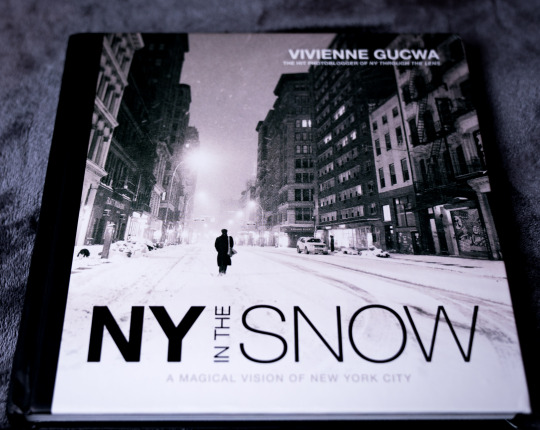
Back cover:
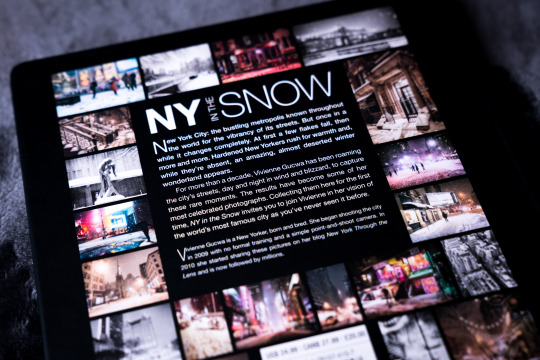
I am proud to say that the printing is impeccable. I have not only included my writing but also the camera settings, cameras used, and locations for each photo ...
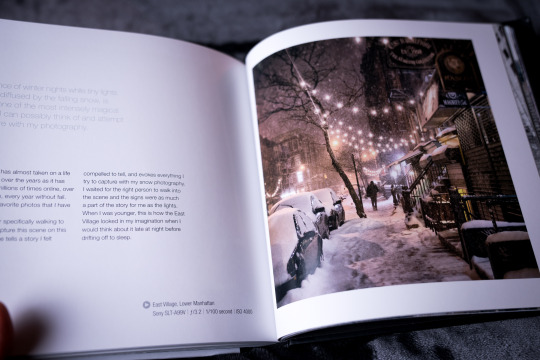
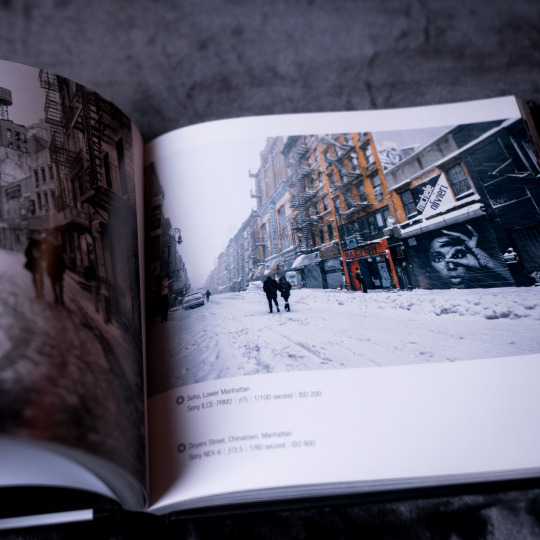

The book is published by Ilex Press, an imprint of Octopus which is under Hachette.

What's the story behind this book?
I photographed every snowstorm in NYC for 7 years. I walked up to 8 miles at a time through blizzards, nor'easters, and all sorts of snowstorms in an attempt to capture the feelings of loneliness, isolation, anxiety , longing, and nostalgia that NYC imparts on many city-dwellers
I have always been intrigued by time, mortality, desire, and memory. Snowstorms are when all of these feelings and concepts surface.

I paraphrased and read the intro to this book in explore what snow in New York City means to me (plus there are snow sounds and nothing is better than the sound of snow crunching underfoot) ...
youtube
What's your story? Where are you from?
I grew up here in New York City in Queens. My family was quite poor and my parents both moved to America to pursue better lives when they were younger.
In 2008, I was extremely broke and had very little money. I was also stressed out as I had quit my job to go back to school to finally finish the degree which I had abandoned nearly a decade earlier because I needed to work many jobs to support myself.
Living on my own since the age of 17 years old with no family support or safety net put me in the precarious position of working many jobs to keep myself afloat while living in New York City. I worked 7 days a week for quite a while and decided I needed to make a change in my life before my life passed me by and I barely explored my passions.
It took a huge leap of faith to put myself back in school. But I did. I decided to go back to school pursuing a pre-med path.
Without much in the way of material things or financial prosperity, walking became my number one way to deal with stress. It also became a way for me to experience the city like I hadn’t before. I would choose a direction and walk as far as my feet would take me; I still do this.
My walks opened my eyes to a New York City that I hadn’t experienced before. I knew that I wanted to capture the moments and experiences on my walks that made my heart swell. However, I was so broke that I couldn’t even afford a smartphone or a smartphone plan. I went on Amazon and purchased the cheapest point and shoot I could find. At $79, it was a huge investment at the time. That humble little camera had one button and a few settings (one of which was broken!). I didn’t care though. I finally had a tool to explore my view and vision of New York City.
In 2009, I decided to finally post the photos I had accumulated along the way online. I knew nothing about posting photography online and had heard that blogs were a great place to post photography. I literally googled the word “blog” one evening and Tumblr came up as the first search result. I decided to create my blog, NY Through The Lens on Tumblr purely for myself as a way to view my collected images in a beautiful way online.
Since I had no formal training in photography or in-depth knowledge of the rules and concepts defining the field, it didn’t occur to me that I’d have an audience for my work. I honestly didn’t think that anyone would be interested in what I was posting online to my Tumblr blog. However, within a few months of posting my photos to Tumblr, I amassed close to 70,000 followers and I was both humbled and touched by the messages I would receive on a weekly basis.

Most of my photography is heavily influenced by cinema, music, and other art forms as I have a background in fine art (painting and art history).
I am also endlessly haunted by a deep longing for a place that is unidentifiable but somehow familiar and indicative of what can be seen as home. I am on a never-ending quest to try to imbue my photography of Cities and landscapes with this complex notion Of nostalgic longing.
I am fascinated and interested in exploring how certain tones can produce feelings of different forms of nostalgia and how color or lack of color influences memory and desire.

I am currently a full-time photographer who is sponsored by Sony and my first book was a best-seller. It released In 2014. You can read about it Here . I do commissioned work for Hollywood, television, ad agencies, interior designers and also sell my work as prints (and tapestries and much more) here:
New York City Prints and More

Can I Where Else Find You Online? If you are still reading, I love you. Thank you for reading this far into this post. Here is where to find me online: Twitter
Instagram
Facebook
YouTube I Also Recorded A Little Teaser Of Me Flipping through my book today in case you are into that kind of thing (I am!) ...
youtube
It's my most vulnerable photography because it's my life's passion. It feels a bit like sharing a deep secret with the world. Dreams are always fun to share. Hope you enjoy these dreams.

#new york city photography#ny in the snow#vivienne gucwa#new york in the snow#ny in the snow book#vivienne gucwa book#nyc book#new york city book#new york city#nyc snow#snow photography#urban snow#snowstorm nyc#blizzard nyc
871 notes
·
View notes
Photo
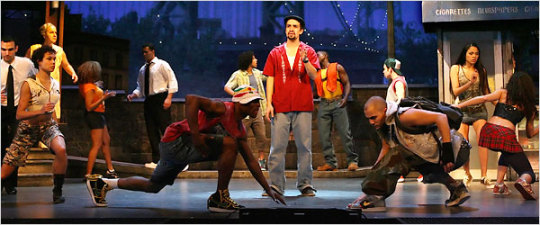
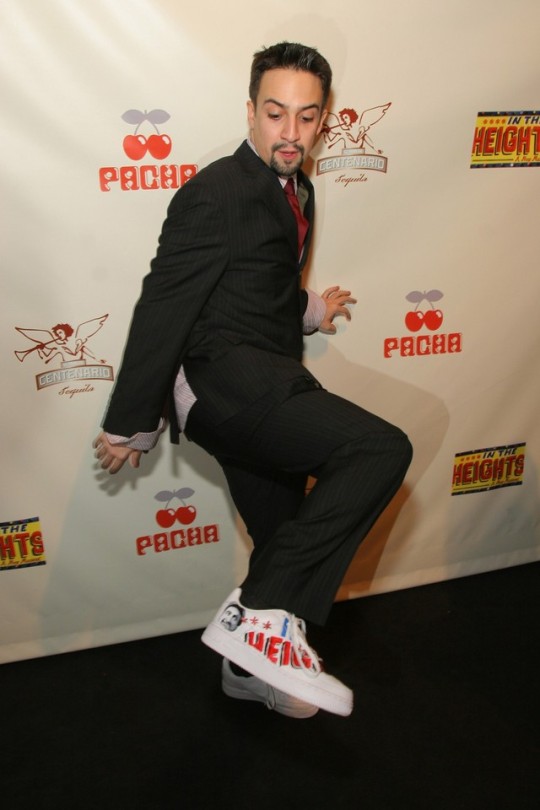
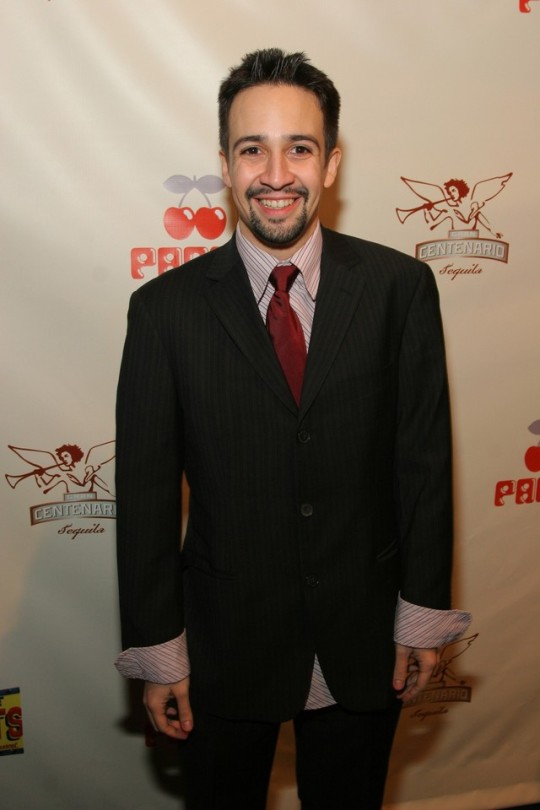
You’re 27. Here Are Millions to Stage Your Musical.
The New York Times, Feb. 18, 2007
IT was late and cold, and outside the nightclub Pacha in far west Midtown a boyish-looking man in a suit and sneakers was walking up to the front doors. Inside, the club was crowded: an eight-piece Latin band was playing, people were dancing and drinking tequila cocktails; it was, as little as the scene may have looked it, an opening-night party for a new Off Broadway musical.
The young man approached the large bouncers out front. “Let me in,” he said, laughing like an under-age teenager who knew he’d get away with it. “I’m the guy who wrote the play.”
Lin-Manuel Miranda was in a good mood, and for good reason. In the Heights, a Latin and hip-hop musical set in a block or two of the Latino neighborhood of Washington Heights, had just opened, after seven years of work, in a $2.5 million Off Broadway production.
The reviews were trickling in, and they ranged from mostly warm (Charles Isherwood in The New York Times called the musical “light and sweet”) to mostly glowing (“bursts with a vitality and freshness” said the New York Post reviewer).
A good night for the creative team, most of whom are at least a decade younger than the average Broadway theatergoer: Mr. Miranda, the conceiver, composer, lyricist and star just turned 27; Quiara Alegría Hudes, who wrote the book, is 29; and Thomas Kail, the director, just turned 30. To see people so young involved with a big project like this could be sweet tonic for those inclined to fret about the Future of the American Musical, which explains the buzz that has followed this production for years.
But all this youth could also prompt a not-preposterous question: How did they get to be at the helm of a $2.5 million commercial production in the first place?
While it may seem that Mr. Miranda brought hip-hop and Latin-flavored sounds to the traditional musical, he was actually a Broadway baby first. His father, a community organizer turned major league political consultant, and his mother, a psychologist — both from Puerto Rico — introduced him early on to Man of La Mancha and The Unsinkable Molly Brown. By the time he graduated from the elite Hunter College High School, Mr. Miranda had acted in a string of school shows, directed a production of West Side Story and written several musicals (including a few “very Les Miz-ish” numbers for a musical adaptation of Chaim Potok’s Chosen).
So he has musical bona fides. What about the experience of growing up in Washington Heights? “Most of my friends were white and Jewish,” said Mr. Miranda, a profoundly affable young man who constantly shifts between energized and self-deprecating. As for the local Latino teenagers, “I was pretty isolated from them.”
With few friends in the neighborhood where he lived, weekends meant a lot of watching television, listening to music and making home-made movies. “I was really a self-entertained kid,” he said.
But later, like countless college students before him, Mr. Miranda discovered where he was from once he had left. At Wesleyan University, in Middletown, Conn., he moved into the Latino student house; one summer in college he got a job covering Washington Heights for Manhattan Times, which became a kind of seminar course on the neighborhood and its residents.
When he decided to write a musical for a theater on campus, he drew on the boleros and traditional Latin sounds he had mostly ignored growing up, and the wordplay of lyrically dexterous rap groups like the Pharcyde and Black Sheep he listened to in high school. The early version of In the Heights was a campus hit his sophomore year.
At first the show centered on a love triangle. Two characters — Nina, a Heights resident who becomes something of an outsider when she leaves for a prestigious university, and Benny, an outsider because he is not Latino — are still part of the show. Another — Lincoln, Nina’s closeted brother, who has a crush on Benny — would be gradually phased out.
The focus on outsiders, people who are in the neighborhood but are not exactly of the neighborhood, was no coincidence given Mr. Miranda’s experience, which also goes some way toward explaining the neighborhood’s rose-tinted portrait. But the genre tends to be filled with those kind of characters anyway.
“It was an amalgam of every musical I’d ever seen,” Mr. Miranda said, citing Rent, West Side Story and Fiddler on the Roof in particular.
Mr. Kail, who had graduated from Wesleyan ahead of Mr. Miranda, was given a recording of Heights by fellow alumni with whom he had started a theater company, Back House Productions, in the basement of the Drama Bookshop on West 40th Street in Manhattan. They staged a few workshops, and the buzz grew among the abidingly older and whiter Broadway crowd: A new musical. By a young guy. A Latino guy. And it’s got rap, but rap that appeals to people who normally don’t like rap.
The show might well have languished for years in readings. It could have been picked up for a musical festival. An interested producer could have taken it to a nonprofit. An especially confident producer could have brought in a new, more experienced team to rework it, and presented the show commercially.
But none of that happened. Jill Furman was the first producer to express serious interest; she was followed by Kevin McCollum and Jeffrey Seller, the power hitters whose specialty is finding left-field hits like Rent and Avenue Q.
Mr. Kail stayed onboard. When it became clear that Mr. Miranda, in addition to conceiving, composing, writing lyrics and acting, could not also tackle the book — which everyone agreed needed the most work — Ms. Furman found Ms. Hudes, who, like Mr. Miranda, grew up in a mostly Latino neighborhood (in Philadelphia) and went to a prestigious northeastern university (Yale). She was also, at the time, 25 years old.
Workshops were held at the Manhattan Theater Club, followed by a stint at the Eugene O’Neill Theater Center in Waterford, Conn., and another semi-staged workshop in New York. But there was no question where the show this was headed.
As the play was being reworked, the producers talked to nonprofit theaters around town in search of a stage big enough to contain a neighborhood. Well, as luck would have it, Mr. McCollum and Mr. Seller are part owners of a young Off Broadway theater, 37 Arts, at 37th Street near 10th Avenue, which had been longing for a show that could draw audiences that far west.
Running a show commercially costs money, but the producers said that if they had put on the show in a nonprofit theater, they would have contributed about $1.5 million — and would have lost control.
“There was so much enthusiasm for the talent involved with this show,” Mr. Seller said, “that spending $1.5 million to do it at a resident theater company versus spending $2.5 million to do it Off Broadway became a wash for us.”
Mr. Kail said that while many Off Broadway shows are scrambling to cut as many characters as possible to save on costs, the producers of Heights hired five more people. The cast has now swelled to 22.
So this is how a 27-year-old more-or-less-untried songwriter and actor ended up at the front of a large, multimillion-dollar production which seems, if not Broadway bound, at least Broadway oriented.
The Seller-McCollum approach — finding already-conceptualized projects, usually in the hands of novices, and getting them onstage — does carry risks for the producers. The last venture they helped produce, the $10 million musical High Fidelity, was loaded with young talent. It closed on Broadway in December within two weeks of opening, one of the high-profile disasters of this season.
But does the approach carry a comparable risk for a young artist? Mr. Seller offers an emphatic no.
“So many young musical theater writers, directors and choreographers are not getting the chance to learn their craft, because no one’s giving them the tools to do a show,” he said. “If they fail, they will learn from it and go on to their next project, and if they succeed, well, they will learn from it and go on to their next project.”
Mr. Miranda of course said he had only been thinking as far as opening night. But after working for seven years on a show that encompasses much of his life, does he worry about a follow-up?
“I have tons of ideas,” he said. “Literally if have a file on my computer which I call Post-“Heights.” It’s growing. But, yeah, I know that a good deal of childhood and my young adulthood is in this show. And so yeah, it’s um, it’s um —” He paused, uncharacteristically. “That’s a great question.”
138 notes
·
View notes
Text
The first 20 hours -- how to learn anything | Josh Kaufman | TEDxCSU
New Post has been published on https://hititem.kr/the-first-20-hours-how-to-learn-anything-josh-kaufman-tedxcsu-2/
The first 20 hours -- how to learn anything | Josh Kaufman | TEDxCSU
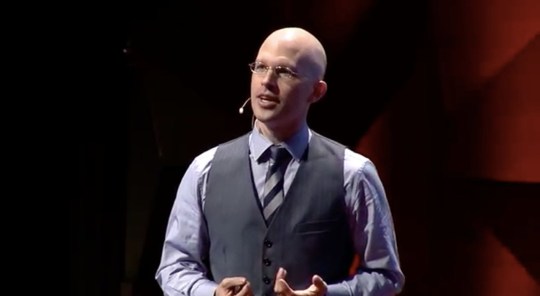
Translator: Gustavo Rocha Reviewer: Marssi Draw hi each person. Two 12 months ago, my life converted endlessly. My wife Kelsey and that i welcomed our daughter Lela into the world. Now, becoming a dad or mum is an strong expertise. Your whole world alterations over night. And your entire priorities alternate right away. So rapid that it makes it fairly difficult to procedure generally. Now, you additionally must learn a large quantity about being a mother or father like, for instance, how one can costume your baby. (Laughter) This used to be new to me. This is an specific outfit, I idea this was once a just right notion. And even Lela knows that it can be now not a good notion.(Laughter) So there is so much to study and so much craziness all at once. And so as to add to the craziness, Kelsey and that i both work from home, we’re entrepreneurs, we run our own firms. So, Kelsey develops courses online for yoga teachers. I’m an creator. And so, i am working from house, Kelsey’s working from home. Now we have an youngster and we’re looking to ensure that the whole thing gets executed that wishes carried out. And existence is particularly, particularly busy. And a few weeks into this mighty expertise, when the sleep deprivation quite kicked in, like round week eight, I had this suggestion, and it was once the same suggestion that mothers and fathers across the a while, internationally, everybody has had this notion, which is: i’m not ever going to have free time ever again. (Laughter) anyone said it is actual. It is not exactly true, but it feels fairly, particularly authentic in that moment. And this was particularly disconcerning to me, on the grounds that one of the matters that I revel in more than whatever else is learning new things. Getting concerned with some thing and diving in and fiddling around and finding out via trial and mistake. And finally fitting beautiful excellent at anything.And without this free time, I did not understand how I was ever going to do this ever once more. And so, i am a significant geek, I want to maintain finding out matters, I wish to maintain developing. And so what I’ve made up our minds to do was, go to the library, and go to the bookshop, and look at what study says about how we learn and how we learn speedily. And that i read a bunch of books, I learn a bunch of websites. And tried to reply this question, how long does it take to accumulate a brand new ability? You understand what I located? 10,000 hours! Anybody ever heard this? It takes 10,000 hours. If you want to learn whatever new, if you wish to be just right at it, it will take 10,000 hours to get there. And i read this in ebook after guide, in internet site after internet site. And my intellectual expertise of studying all of this stuff was once like: No!! I should not have time! I would not have 10,000 hours.I am by no means going to be able to be trained some thing new. Ever again. (Laughter) however that is now not actual. So, 10,000 hours, just to give you a hard order of magnitude, 10,000 hours is a full-time job for five years. That is a long time. And we have now all had the experience of learning some thing new, and it failed to take us at any place virtually that amount of time, proper? So, what’s up? There’s anything kinda funky occurring right here. What the study says and what we assume, and have experiences, they do not fit up. And what I located, this is the wrinkle: the ten,000 hour rule came out of stories of trained-level efficiency. There is a professor at Florida State university, his name is okay. Anders Ericsson. He’s the originator of the 10,00 hour rule. And where that came from is, he studied legitimate athletes, world classification musicians, chess grand masters.All of this extremely aggressive men and women in ultra-excessive performing fields. And he tried to figure out how long does it take to get to the highest of these kinds of fields. And what he discovered is, the more deliberate apply, the extra time that those individuals spend practicing the elements of some thing it is that they do, the more time you spend, the simpler you get. And the people at the tippy prime of their fields put in round 10,000 hours of observe.Now, we have been speakme in regards to the recreation of cellphone a little bit bit previous. This is what occurred: an writer by using the name of Malcolm Gladwell wrote a guide in 2007 referred to as "Outliers: The Story of Success", and the imperative piece of that booklet was the 10,000 hour rule. Observe rather a lot, follow well, and you’ll do totally good, you’ll reach the highest of your field. So, the message, what Dr. Ericsson was once virtually saying is, it takes 10,000 hours to get on the high of an ultra competitive subject in an extraordinarily slender field, that is what that means. But here’s what occurred: ever considering that Outliers came out, immediately came out, reached the top of satisfactory seller lists, stayed there for three stable months. Suddenly the 10,000 hour rule was all over the place. And a society-huge recreation of mobile began to be played. So this message, it takes 10,000 hours to reach the top of an ultra competitive field, grew to become, it takes 10,000 hours to become an educated at something, which grew to become, it takes 10,000 hours to end up good at something, which grew to become, it takes 10,000 hours to be taught whatever.But that final assertion, it takes 10,000 hours to learn anything, isn’t real. It is not actual. So, what the research genuinely says — I spent numerous time here on the CSU library within the cognitive psychology stacks ‘motive i am a geek. And while you absolutely look at the experiences of ability acquisition, you see again and again a graph like this. Now, researchers, whether or not they are studying a motor skill, some thing you do bodily or a mental talent, they wish to gain knowledge of matters that they can time. ‘motive that you can quantify that, right? So, they are going to provide study participants somewhat project, whatever that requires bodily association, or some thing that requires learning slightly mental trick, and they will time how lengthy a participant takes to entire the ability. And here’s what this graph says, when you start — so when researchers gave participants a venture, it took them a really very long time, ‘rationale it was once new they usually have been horrible.With slightly little bit of follow, they get better and higher and better. And that early part of practice is really, relatively efficient. People get excellent at matters with just a little bit of observe. Now, what’s fascinating to note is that, for potential that we need to be taught for ourselves, we do not care a lot about time, right? We simply care about how just right we are, whatever excellent happens to intend. So if we relabel performance time to how just right you are, the graph flips, and you get his famous and broadly recognized, that is the learning curve. And the story of the training curve is whilst you , you are grossly incompetent and you understand it, proper? (Laughter) With a bit bit of apply, you get quite just right, quite speedy. So that early stage of growth is really speedy. After which at a specified factor you attain a plateau, and the following video games emerge as so much tougher to get, they take more time to get. Now, my query is, i need that, correct? How long does it take from opening whatever and being grossly incompetent and figuring out it to being moderately just right? In with a bit of luck, as short a interval of time as feasible.So, how long does that take? Here is what my study says: 20 hours. That’s it. Which you could go from figuring out nothing about any talent that you could believe of. Want to learn a language? Wish to be trained how to attract? Need to learn find out how to juggle flaming chainsaws? (Laughter) for those who put 20 hours of centered deliberate follow into that thing, you will be astounded. Astounded at how good you are. 20 hours is manageable, that’s about 45 minutes a day for approximately a month. Even skipping a couple days, here and there. 20 hours isn’t that rough to build up. Now, there may be a system to doing this. Due to the fact that it’s no longer like which you can just fiddling round for approximately 20 hours and count on these significant enhancements.There may be a method to follow intelligently. There may be a option to practice effectively, so as to ensure that you just invest these 20 hours in essentially the most strong approach that you very likely can. And this is the approach, it applies to anything: the primary is to deconstruct the talent. Come to a decision precisely what you need to be able to do when you are done, after which seem into the ability and break it down into smaller pieces.Most of the matters that we believe of as competencies are absolutely huge bundles of capabilities that require all varieties of specific matters. The extra you could wreck aside the ability, the extra you are able to make a decision, what are the components of this skill that may without a doubt support me get to what i want? After which you could apply these first. And if you follow the principal matters first, you can be able to beef up your performance in the slightest degree period of time viable. The second is, learn ample to self proper. So, get three to 5 assets about what it’s you’re looking to gain knowledge of. Could be ebook, might be DVDs, might be guides, might be anything. However don’t use these with the intention to procrastinate on practice. I know I do this, proper? Get like 20 books about the matter, like, "i’m going to start studying the best way to application a pc after I whole these 20 books". No. That’s procrastination. What you want to do is gain knowledge of simply adequate that you can genuinely practice and self right or self edit as you follow.So the training becomes a method of getting better at noticing when you are making a mistake after which doing something just a little extraordinary. The 1/3 is to dispose of barriers to practice. Distractions, tv, internet. All of these matters that get in the way of you simply sitting down and doing the work. And the more you’re equipped to make use of just a bit little bit of willpower to cast off the distractions which can be preserving you from practising, the more doubtless you might be to actually sit down down and follow, proper? And the fourth is to practice for at least 20 hours.Now, most potential have what I name a frustration barrier. You understand, the grossly-incompetent- and-figuring out-it section? That’s quite, really irritating. We don’t like to consider stupid. And feeling silly is a barrier to us truely sitting down and doing the work. So, through pre-committing to working towards whatever it’s that you want to do for at least 20 hours, you’ll be ready to beat that preliminary frustration barrier and stick to the follow long adequate to virtually reap the rewards. That is it! It is not rocket science. 4 quite simple steps that you need to use to be trained anything. Now, that is easy to talk about in thought, nevertheless it’s extra enjoyable to speak about in observe. So one of the things that I’ve desired to be trained how one can do for a long time is play the ukulele. Has someone seen Jake Shimabukuro’s TEDTalk the place he performs the ukulele and makes it sound like — he’s like a ukulele god. It can be potent. I noticed it, I was like, "that’s so cool!" it’s this sort of neat instrument. I might relatively wish to be taught learn how to play.And so I determined that to test this conception I desired to position 20 hours into working towards ukulele and notice the place it got. And so the first thing about playing the ukulele is, with the intention to practice, you must have one, correct? So, I obtained an ukulele and — My beautiful assistant? (Laughter) thank you sir. I suppose i want the chord here. It’s no longer just an ukulele, it can be an electric ukulele. (Laughter) Yeah. So, the primary couple hours are similar to the primary couple hours of something.You have got to get the instruments that you are making use of to practice. You must ensure they’re on hand. My ukulele did not include strings connected. I had to figure out the best way to put these on. Like, that is sort of fundamental, proper? And studying the way to tune, learning how you can ensure that all the matters that ought to be carried out with a view to working towards get accomplished, correct? Now, one of the vital matters once I used to be able to sincerely training was I seemed in on-line databases and songbooks for easy methods to play songs.They usually say, k, ukuleles, which you can play more than one string at a time, so you could play chords, that is cool, you are accompanying yourself, yay you. (Laughter) And when I started watching at songs, I had an ukulele chord publication that had like 1000s of chords. Looking at this and "Wow, that’s intimidating". However when you look at the exact songs, you see the identical chords time and again, correct? Because it seems, playing the ukulele is type of like doing anything, there may be a very small set of matters that are particularly principal and techniques that you can use always. And in most songs you’ll use four, possibly 5 chords, and that’s it, that’s the song. You do not have to know hundreds, as long as you already know the 4 or the 5.So, whilst I used to be doing my research, I determined a uncommon little medley of pop songs via a band referred to as Axis of great. (Whistles) — a person is aware of it. — And what Axis of exceptional says is that you would be able to learn, or that you could play more often than not any pop song of the past five a long time, if you understand four chords, and people chords are G, D, Em and C. 4 chords pump out each pop track ever, right? So I idea, that is cool! I wish to play each pop music ever. (Laughter) So, that was the first music I made up our minds to gain knowledge of, and that i want to absolutely share it with you. In a position? (Applause) very well. (tune) (Singing) just a small town girl, residing in a lonely world, she took the midnight instruct going anyplace. I heard that you settled down, (Laughter) that you found a girl, that you are married now. Every night time in my desires (Laughter) I see you, I believe you, that is how i do know you go on. (Laughter) I is not going to hesitate no more, no more. It are not able to wait, i am yours.’purpose you have been amazing, we did robust things. If I might, then i’d, i would go anywhere you are going to — are you able to suppose the love tonight. (Laughter) I can not reside with or without you. After I to find myself — once I to find myself in occasions of predicament, mother Mary comes to me, sometimes I feel like I do not need companion. No girl, no cry. Yeah mama, this certainly is a dream. I come from a land down beneath. (Laughter) as soon as a jolly swagman camped by means of a billabong. Good day, I just met you, and this is loopy, (Laughter) however this is my quantity, so name me whats up attractive woman, op, op, op, op, oppan gangnam kind. (Laughter) it’s time to say goodbye. Closing time, each new opening comes from every other opening’s finish. (Singing and music ends) (Applause) thank you, thanks. I really like that tune. (Laughter) And i have a secret to share with you. So, by means of playing that music for you, I simply hit my twentieth hour of working towards the ukulele.(Applause) thank you. And so it is strong, frequently whatever that you could think of, what do you need to do. The predominant barrier to be trained whatever new is just not intellectual, it can be no longer the method of you learning a bunch of little recommendations or tips or things. The primary barrier’s emotional. We’re scared. Feeling silly doesn’t suppose excellent, within the starting of studying some thing new you suppose particularly stupid. So the essential barrier’s now not mental, it’s emotional. However put 20 hours into anything. It doesn’t matter. What do you want to be trained? Do you need to learn a language? Wish to be taught learn how to prepare dinner? Want to be taught how to draw? What turns you on? What lights you up? Exit and try this thing. It only takes 20 hours.Have fun. (Applause) .

#Colorado State University#education#english#Entertainment#learning#lifestyle#music#Parents#psychology#TED#ted talk#ted talks#TED X#tedx#tedx talk#tedx talks#TEDxCSU#United States (Country)#USA
0 notes
Text
The first 20 hours -- how to learn anything | Josh Kaufman | TEDxCSU
New Post has been published on https://hititem.kr/the-first-20-hours-how-to-learn-anything-josh-kaufman-tedxcsu-2/
The first 20 hours -- how to learn anything | Josh Kaufman | TEDxCSU
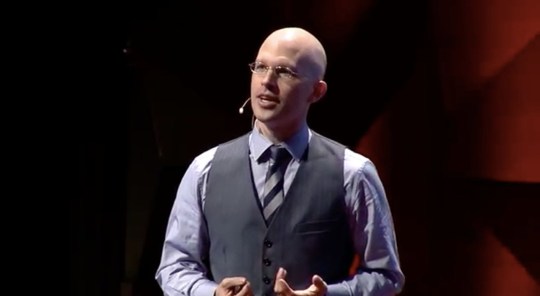
Translator: Gustavo Rocha Reviewer: Marssi Draw hi each person. Two 12 months ago, my life converted endlessly. My wife Kelsey and that i welcomed our daughter Lela into the world. Now, becoming a dad or mum is an strong expertise. Your whole world alterations over night. And your entire priorities alternate right away. So rapid that it makes it fairly difficult to procedure generally. Now, you additionally must learn a large quantity about being a mother or father like, for instance, how one can costume your baby. (Laughter) This used to be new to me. This is an specific outfit, I idea this was once a just right notion. And even Lela knows that it can be now not a good notion.(Laughter) So there is so much to study and so much craziness all at once. And so as to add to the craziness, Kelsey and that i both work from home, we’re entrepreneurs, we run our own firms. So, Kelsey develops courses online for yoga teachers. I’m an creator. And so, i am working from house, Kelsey’s working from home. Now we have an youngster and we’re looking to ensure that the whole thing gets executed that wishes carried out. And existence is particularly, particularly busy. And a few weeks into this mighty expertise, when the sleep deprivation quite kicked in, like round week eight, I had this suggestion, and it was once the same suggestion that mothers and fathers across the a while, internationally, everybody has had this notion, which is: i’m not ever going to have free time ever again. (Laughter) anyone said it is actual. It is not exactly true, but it feels fairly, particularly authentic in that moment. And this was particularly disconcerning to me, on the grounds that one of the matters that I revel in more than whatever else is learning new things. Getting concerned with some thing and diving in and fiddling around and finding out via trial and mistake. And finally fitting beautiful excellent at anything.And without this free time, I did not understand how I was ever going to do this ever once more. And so, i am a significant geek, I want to maintain finding out matters, I wish to maintain developing. And so what I’ve made up our minds to do was, go to the library, and go to the bookshop, and look at what study says about how we learn and how we learn speedily. And that i read a bunch of books, I learn a bunch of websites. And tried to reply this question, how long does it take to accumulate a brand new ability? You understand what I located? 10,000 hours! Anybody ever heard this? It takes 10,000 hours. If you want to learn whatever new, if you wish to be just right at it, it will take 10,000 hours to get there. And i read this in ebook after guide, in internet site after internet site. And my intellectual expertise of studying all of this stuff was once like: No!! I should not have time! I would not have 10,000 hours.I am by no means going to be able to be trained some thing new. Ever again. (Laughter) however that is now not actual. So, 10,000 hours, just to give you a hard order of magnitude, 10,000 hours is a full-time job for five years. That is a long time. And we have now all had the experience of learning some thing new, and it failed to take us at any place virtually that amount of time, proper? So, what’s up? There’s anything kinda funky occurring right here. What the study says and what we assume, and have experiences, they do not fit up. And what I located, this is the wrinkle: the ten,000 hour rule came out of stories of trained-level efficiency. There is a professor at Florida State university, his name is okay. Anders Ericsson. He’s the originator of the 10,00 hour rule. And where that came from is, he studied legitimate athletes, world classification musicians, chess grand masters.All of this extremely aggressive men and women in ultra-excessive performing fields. And he tried to figure out how long does it take to get to the highest of these kinds of fields. And what he discovered is, the more deliberate apply, the extra time that those individuals spend practicing the elements of some thing it is that they do, the more time you spend, the simpler you get. And the people at the tippy prime of their fields put in round 10,000 hours of observe.Now, we have been speakme in regards to the recreation of cellphone a little bit bit previous. This is what occurred: an writer by using the name of Malcolm Gladwell wrote a guide in 2007 referred to as "Outliers: The Story of Success", and the imperative piece of that booklet was the 10,000 hour rule. Observe rather a lot, follow well, and you’ll do totally good, you’ll reach the highest of your field. So, the message, what Dr. Ericsson was once virtually saying is, it takes 10,000 hours to get on the high of an ultra competitive subject in an extraordinarily slender field, that is what that means. But here’s what occurred: ever considering that Outliers came out, immediately came out, reached the top of satisfactory seller lists, stayed there for three stable months. Suddenly the 10,000 hour rule was all over the place. And a society-huge recreation of mobile began to be played. So this message, it takes 10,000 hours to reach the top of an ultra competitive field, grew to become, it takes 10,000 hours to become an educated at something, which grew to become, it takes 10,000 hours to end up good at something, which grew to become, it takes 10,000 hours to be taught whatever.But that final assertion, it takes 10,000 hours to learn anything, isn’t real. It is not actual. So, what the research genuinely says — I spent numerous time here on the CSU library within the cognitive psychology stacks ‘motive i am a geek. And while you absolutely look at the experiences of ability acquisition, you see again and again a graph like this. Now, researchers, whether or not they are studying a motor skill, some thing you do bodily or a mental talent, they wish to gain knowledge of matters that they can time. ‘motive that you can quantify that, right? So, they are going to provide study participants somewhat project, whatever that requires bodily association, or some thing that requires learning slightly mental trick, and they will time how lengthy a participant takes to entire the ability. And here’s what this graph says, when you start — so when researchers gave participants a venture, it took them a really very long time, ‘rationale it was once new they usually have been horrible.With slightly little bit of follow, they get better and higher and better. And that early part of practice is really, relatively efficient. People get excellent at matters with just a little bit of observe. Now, what’s fascinating to note is that, for potential that we need to be taught for ourselves, we do not care a lot about time, right? We simply care about how just right we are, whatever excellent happens to intend. So if we relabel performance time to how just right you are, the graph flips, and you get his famous and broadly recognized, that is the learning curve. And the story of the training curve is whilst you , you are grossly incompetent and you understand it, proper? (Laughter) With a bit bit of apply, you get quite just right, quite speedy. So that early stage of growth is really speedy. After which at a specified factor you attain a plateau, and the following video games emerge as so much tougher to get, they take more time to get. Now, my query is, i need that, correct? How long does it take from opening whatever and being grossly incompetent and figuring out it to being moderately just right? In with a bit of luck, as short a interval of time as feasible.So, how long does that take? Here is what my study says: 20 hours. That’s it. Which you could go from figuring out nothing about any talent that you could believe of. Want to learn a language? Wish to be trained how to attract? Need to learn find out how to juggle flaming chainsaws? (Laughter) for those who put 20 hours of centered deliberate follow into that thing, you will be astounded. Astounded at how good you are. 20 hours is manageable, that’s about 45 minutes a day for approximately a month. Even skipping a couple days, here and there. 20 hours isn’t that rough to build up. Now, there may be a system to doing this. Due to the fact that it’s no longer like which you can just fiddling round for approximately 20 hours and count on these significant enhancements.There may be a method to follow intelligently. There may be a option to practice effectively, so as to ensure that you just invest these 20 hours in essentially the most strong approach that you very likely can. And this is the approach, it applies to anything: the primary is to deconstruct the talent. Come to a decision precisely what you need to be able to do when you are done, after which seem into the ability and break it down into smaller pieces.Most of the matters that we believe of as competencies are absolutely huge bundles of capabilities that require all varieties of specific matters. The extra you could wreck aside the ability, the extra you are able to make a decision, what are the components of this skill that may without a doubt support me get to what i want? After which you could apply these first. And if you follow the principal matters first, you can be able to beef up your performance in the slightest degree period of time viable. The second is, learn ample to self proper. So, get three to 5 assets about what it’s you’re looking to gain knowledge of. Could be ebook, might be DVDs, might be guides, might be anything. However don’t use these with the intention to procrastinate on practice. I know I do this, proper? Get like 20 books about the matter, like, "i’m going to start studying the best way to application a pc after I whole these 20 books". No. That’s procrastination. What you want to do is gain knowledge of simply adequate that you can genuinely practice and self right or self edit as you follow.So the training becomes a method of getting better at noticing when you are making a mistake after which doing something just a little extraordinary. The 1/3 is to dispose of barriers to practice. Distractions, tv, internet. All of these matters that get in the way of you simply sitting down and doing the work. And the more you’re equipped to make use of just a bit little bit of willpower to cast off the distractions which can be preserving you from practising, the more doubtless you might be to actually sit down down and follow, proper? And the fourth is to practice for at least 20 hours.Now, most potential have what I name a frustration barrier. You understand, the grossly-incompetent- and-figuring out-it section? That’s quite, really irritating. We don’t like to consider stupid. And feeling silly is a barrier to us truely sitting down and doing the work. So, through pre-committing to working towards whatever it’s that you want to do for at least 20 hours, you’ll be ready to beat that preliminary frustration barrier and stick to the follow long adequate to virtually reap the rewards. That is it! It is not rocket science. 4 quite simple steps that you need to use to be trained anything. Now, that is easy to talk about in thought, nevertheless it’s extra enjoyable to speak about in observe. So one of the things that I’ve desired to be trained how one can do for a long time is play the ukulele. Has someone seen Jake Shimabukuro’s TEDTalk the place he performs the ukulele and makes it sound like — he’s like a ukulele god. It can be potent. I noticed it, I was like, "that’s so cool!" it’s this sort of neat instrument. I might relatively wish to be taught learn how to play.And so I determined that to test this conception I desired to position 20 hours into working towards ukulele and notice the place it got. And so the first thing about playing the ukulele is, with the intention to practice, you must have one, correct? So, I obtained an ukulele and — My beautiful assistant? (Laughter) thank you sir. I suppose i want the chord here. It’s no longer just an ukulele, it can be an electric ukulele. (Laughter) Yeah. So, the primary couple hours are similar to the primary couple hours of something.You have got to get the instruments that you are making use of to practice. You must ensure they’re on hand. My ukulele did not include strings connected. I had to figure out the best way to put these on. Like, that is sort of fundamental, proper? And studying the way to tune, learning how you can ensure that all the matters that ought to be carried out with a view to working towards get accomplished, correct? Now, one of the vital matters once I used to be able to sincerely training was I seemed in on-line databases and songbooks for easy methods to play songs.They usually say, k, ukuleles, which you can play more than one string at a time, so you could play chords, that is cool, you are accompanying yourself, yay you. (Laughter) And when I started watching at songs, I had an ukulele chord publication that had like 1000s of chords. Looking at this and "Wow, that’s intimidating". However when you look at the exact songs, you see the identical chords time and again, correct? Because it seems, playing the ukulele is type of like doing anything, there may be a very small set of matters that are particularly principal and techniques that you can use always. And in most songs you’ll use four, possibly 5 chords, and that’s it, that’s the song. You do not have to know hundreds, as long as you already know the 4 or the 5.So, whilst I used to be doing my research, I determined a uncommon little medley of pop songs via a band referred to as Axis of great. (Whistles) — a person is aware of it. — And what Axis of exceptional says is that you would be able to learn, or that you could play more often than not any pop song of the past five a long time, if you understand four chords, and people chords are G, D, Em and C. 4 chords pump out each pop track ever, right? So I idea, that is cool! I wish to play each pop music ever. (Laughter) So, that was the first music I made up our minds to gain knowledge of, and that i want to absolutely share it with you. In a position? (Applause) very well. (tune) (Singing) just a small town girl, residing in a lonely world, she took the midnight instruct going anyplace. I heard that you settled down, (Laughter) that you found a girl, that you are married now. Every night time in my desires (Laughter) I see you, I believe you, that is how i do know you go on. (Laughter) I is not going to hesitate no more, no more. It are not able to wait, i am yours.’purpose you have been amazing, we did robust things. If I might, then i’d, i would go anywhere you are going to — are you able to suppose the love tonight. (Laughter) I can not reside with or without you. After I to find myself — once I to find myself in occasions of predicament, mother Mary comes to me, sometimes I feel like I do not need companion. No girl, no cry. Yeah mama, this certainly is a dream. I come from a land down beneath. (Laughter) as soon as a jolly swagman camped by means of a billabong. Good day, I just met you, and this is loopy, (Laughter) however this is my quantity, so name me whats up attractive woman, op, op, op, op, oppan gangnam kind. (Laughter) it’s time to say goodbye. Closing time, each new opening comes from every other opening’s finish. (Singing and music ends) (Applause) thank you, thanks. I really like that tune. (Laughter) And i have a secret to share with you. So, by means of playing that music for you, I simply hit my twentieth hour of working towards the ukulele.(Applause) thank you. And so it is strong, frequently whatever that you could think of, what do you need to do. The predominant barrier to be trained whatever new is just not intellectual, it can be no longer the method of you learning a bunch of little recommendations or tips or things. The primary barrier’s emotional. We’re scared. Feeling silly doesn’t suppose excellent, within the starting of studying some thing new you suppose particularly stupid. So the essential barrier’s now not mental, it’s emotional. However put 20 hours into anything. It doesn’t matter. What do you want to be trained? Do you need to learn a language? Wish to be taught learn how to prepare dinner? Want to be taught how to draw? What turns you on? What lights you up? Exit and try this thing. It only takes 20 hours.Have fun. (Applause) .

#Colorado State University#education#english#Entertainment#learning#lifestyle#music#Parents#psychology#TED#ted talk#ted talks#TED X#tedx#tedx talk#tedx talks#TEDxCSU#United States (Country)#USA
0 notes
Photo
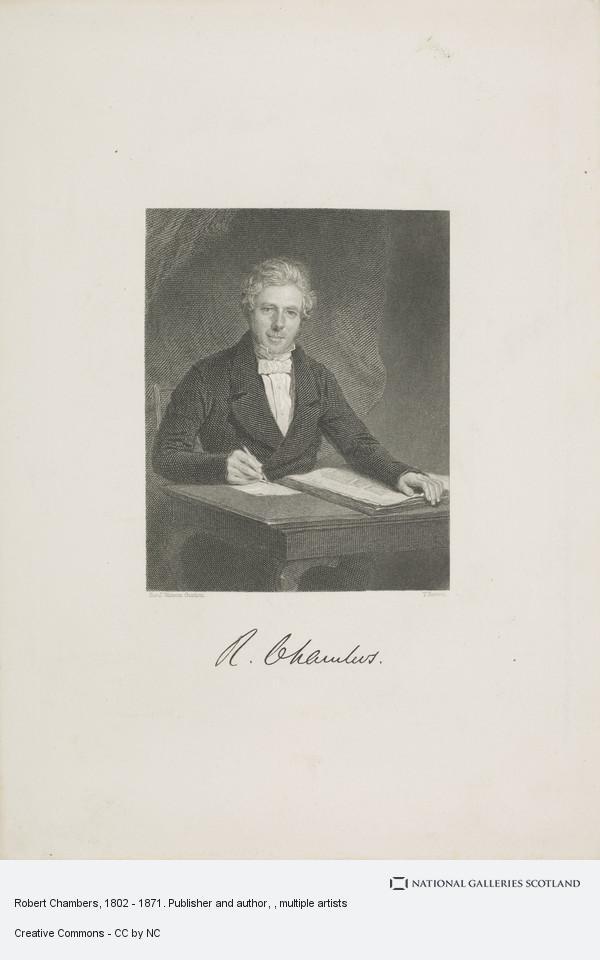
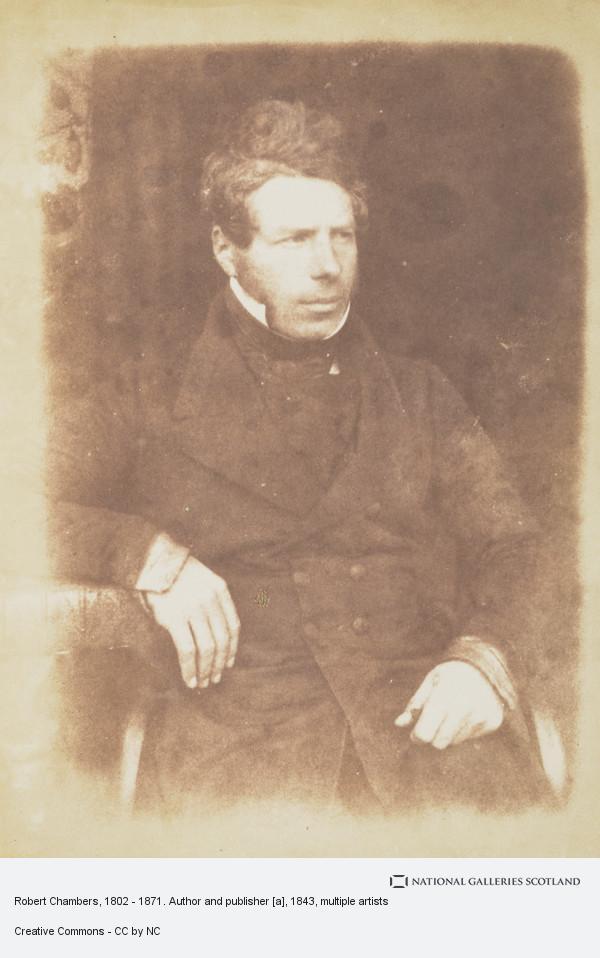
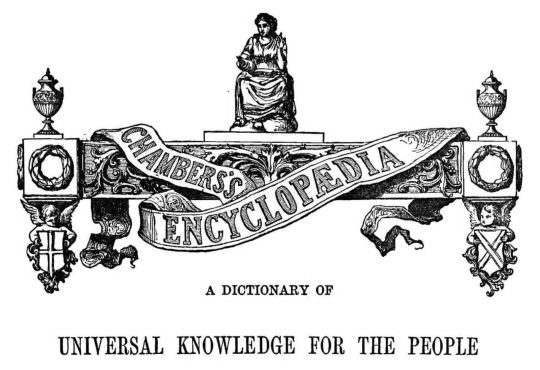
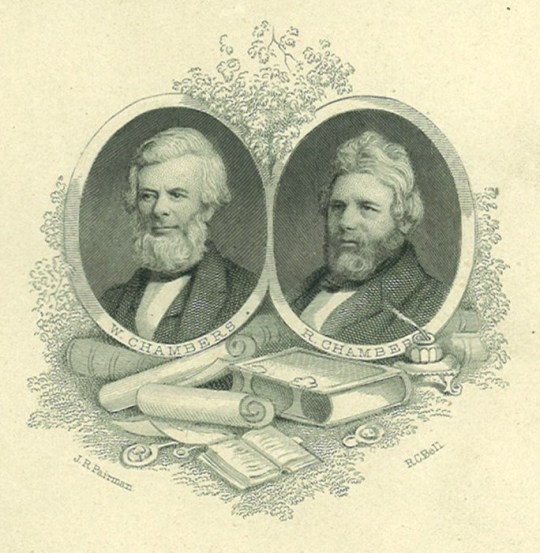
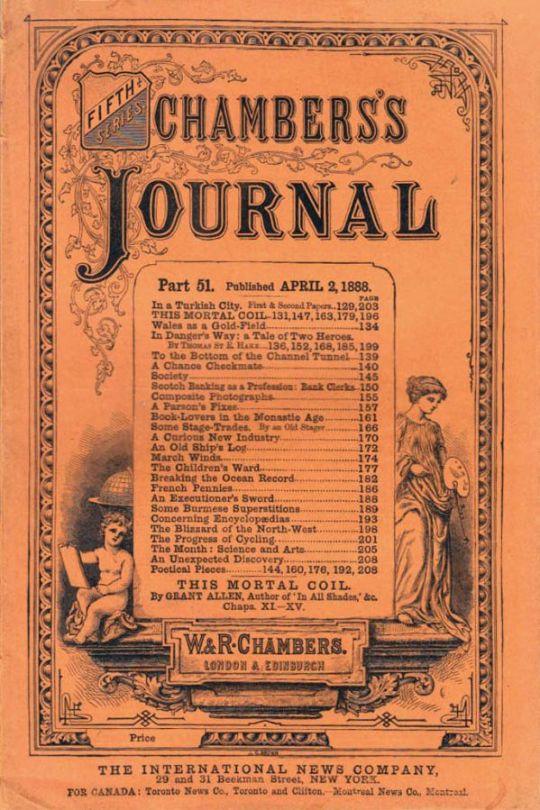

On 10th July 1802 Robert Chambers, the Scottish naturalist and publisher, was born.
I wonder how many of you out there have owned a Chambers dictionary? We always had one in our household growing up, mainly for checking words while playing scrabble.
Two brothers, Robert and William Chambers founded the company that published the book also played a major part in the growth of 19th century writing and publishing in Scotland and the development of the city of Edinburgh.
William and Robert Chambers were part of a relatively prosperous Borders mill owning family with deep roots in Tweeddale. William the elder was born in 1800 and his brother Robert on this day, two years later.
Their father lost his business in 1814 and the family upped sticks and moved to Edinburgh. Life in the capital began in a tenement flat in Nicholson Street. It was a “second rate street home to other families with limited means.” They remained there for less than a year before moving to an even poorer area of the city.
William took up a job as an apprentice in a booksellers, his early jobs being cleaning and lighting the fire, preparing the oil lamps and running errands, but it put him in god stead for his oncoming years. He took lodgings in The West Port, his brother later joining him, but was jobless, William helped support his sibling, he then suggested Robert, using the last few books from his father’s house in Peebles open a small bookshop in Leith, the family business was born. Within a short time William also opened a bookshop close to his brother.
A small printing press was acquired and together the brothers turned to publishing. They printed, bound and published a range of books including 750 copies of the Songs of Robert Burns, a best-seller in 19th century Edinburgh.
It was perhaps inevitable that both would turn to writing and together they wrote and published the Kaleidoscope a fortnightly periodical. Half a century later William reflected on the struggle to produce the journal. “The mechanical execution of the literary serial sorely tested the powers of my little press which received sundry claspings of iron to strengthen it for the unexpected duty.” Although the Kaleidoscope didn’t last long, life was getting better. It was, “a small trial of one’s wings.”
Thanks to a commission from Walter Scott William and Robert moved home again as their business continued to develop. By 1832 the first edition of the Chambers Edinburgh Journal was published. It was an immediate and unprecedented success with 30,000 copies sold in Scotland and a further 20,000 in England. As well as publishing pieces by Walter Scott between 1879 and 1895, the magazine published 3 short stories and 1 article written by Arthur Conan Doyle. Initially Robert was only a contributor but after the 14th issue he became joint editor and W and R Chambers was founded.
I really should only be covering Robert in this post, but I have to tell you a bit about William, who rose to become Lord Provost of Edinburgh, in that position he helped save the life of a stray dog that was going to be rounded up and destroyed as he never had a license. Hearing of the poor dog William himself paid for the license, a collar for the dog and feeding bowl that can still be seen in The Museum of Edinburgh. Without this act of kindness we might not know the extraordinary tale of Greyfriars Bobby!
Anyways, back to we brother Robert. In 1844 Robert published, anonymously, the Vestiges of the Natural History of Creation, 15 years before Darwin’s Origin of the Species. It received very mixed reviews. One said that, “there was a fair chance of poisoning the fountains of science and sapping the foundations of religion.” Another took an opposing view by saying the book was like a, “breath of fresh air to workmen in a crowded factory.”
William and Robert Chambers achieved much in their lives but perhaps their greatest satisfaction came from the purchase of their Scottish Borders home 40 years after their father had been forced to give it up.
Although now owned by a multi-national the firm started in 1819, W. & R. Chambers Publishers still trades and is one of the foremost publishers of reference books in may ares including….
Dictionaries
Thesauruses
Language Reference
Subject Reference
School Range
Crosswords
Puzzles
Games
Phrasebooks
Adult Learners’ Range.
Robert Chambers died on 17 March 1871 in St Andrews and is buried in the Cathedral burial ground in the interior of the old Church of St. Regulus, according to his wishes.
A memorial window remembers the brother in St Giles on The Royal Mile, Edinburgh as seen in the pic.
9 notes
·
View notes
Text
June Loves on wearing a woolly, faded blue dressing gown over your clothes, and more
June Loves is author of over 100 books, including non-fiction and fiction for adults and children, reference books and academic publications. June is an enthusiastic energetic author, teacher and speaker. She frequently presents book talks and writers’ workshops in libraries, schools and clubs on the craft of writing. Her combined career as journalist, teacher, librarian, educational consultant, and bookshop-seller enables her to provide a wealth of knowledge. June and her husband live happily in their seaside town on the picturesque Mornington Peninsula. She spends many hours outdoors exploring the beach and the national park. Their house has a garden with lots of space for caravans and tents – essential for stopovers by friends, family, grandchildren and grand-dogs. The network of friendly and supporting locals in their small community was the inspiration for her novel The Shelly Beach Writers’ Group. What are three books that have influenced your life? Little Women by Louisa Alcott I read this classic ‘real-life’ American novel set in the 1860s when I was seven. I channelled one of the March sisters, Jo, who was always happiest when she was writing in her attic hideaway – wiping her pen on her pinafore. I read the short bio at the back of the novel – ‘Louisa Alcott was the family breadwinner. She wrote her children’s novels to make money.’ This planted the seed of an idea; maybe writing could be a wage-earning career? The Elements of Style by William Strunk J.R. & E.B. White When I was a budding young writer, a journalist gave me this small but important how-to for writers. It’s full of helpful specific tips for writers. Writing about style it has chapter sub-headings such as Write in a way that comes naturally, Revise and Rewrite, and Work from a suitable design. Advice I’ve proved works over and over again. E.B. White is also the author of the fabulous children’s novel, Charlotte’s Web, with the killer opening line to keep young readers enthralled, ‘Where’s Papa going with the Axe?’ (Thankfully Fern, and Charlotte the spider save Wilbur the pig!) Great Expectations by Charles Dickens This was the first Dicken’s novel I read when I was in my teens. It made me realise the power of words on the page. I was hooked by the dramatic opening when Pip brings food and a file for Magwitch the convict. The plot with its constant twists and turns (it was first written in serial form in 1860’s) was a great lesson for me in writing to keep readers turning the pages. My favourite character was the mad, revengeful Miss Havisham who stopped the clock when she was jilted. She lived in the same old wedding dress, her wedding banquet rotting around her. What purchase of $100 has impacted on your life in the last six months? Last week I purchased a pack of Artline 220 Super Fine 0.2mm Fine Line Black pens and I ordered 10 Chunky notebooks online. Both purchases added up to about $100. My comforting purchases are stacked in a cupboard. Now I have a supply of pens and notebooks to record ideas, characters, plots & dialogue – and I’ll be able to capture that best-selling 3am idea! How has failure set you up for later success? I believe if you enjoy writing the only way a writer can fail is to give up. And it helps to have a skin like a salt-water crocodile to cope with rejections. Writers have to accept that rejection will be part and parcel of the professional writing process if you want to publish your writing. Don’t bin or delete a rejection straight away. Sometimes an agent or editor will write encouraging and helpful comments. They may even say they’re interested in reading your work again – if you do a ‘rewrite’. It’s up to you. I’ve known editors, agents or publishers to change their mind. They ask to see your work again and they accept your submission after they’ve rejected it! Rejection can have positive as well as negative outcomes. On the positive side, rejection can inspire you to improve your writing skills. You can re-evaluate your writing after a rejection – rewrite or stand by what you’ve written. If you self-publish you don’t have to worry about rejections. Then again online reviews can be dodgy and hurtful. And you’ll probably feel rejected if sales numbers are low. Do a little war dance and start writing again! Are there any quotes you live your life by? When I was a 15-year old and found myself a job as a Lois Lane reporter in a newspaper my grandmother’s advise was to ‘Work Hard! Work as hard as you can! Be polite and smile!’ This has proved excellent advise in my 25-year career as a teacher librarian, and 24 years as a working writer. What is the best writing resource investment you’ve made? My second-hand clunky Remington Rand typewriter I purchased when I was 15. I paid it off in instalments. Then came the Apple computers I purchased (and have loved) beginning in the 80s. What’s an unusual habit you have? In winter when I spend long hours at the computer I wear a woolly, faded blue dressing gown over my clothes. I enjoy the startled looks of visitors when they think they’ve disturbed a sick old lady – not knowing this old writer has been living the most exciting life typing chapter after chapter of her scandalous novel. What advice would you give to a smart, driven, aspiring author? Make sure you use a correct chair, and your writing space is arranged ergonomically. Keep a glass of water on your desk. Be organised. Plan daily blocks of time within your week or a set amount of time over a week. Develop a routine. Don’t wait for the ‘muse’ or for inspiration. Just write! Set yourself writing goals for each writing session. Aim for a word count goal of 500 to 1,000, a set number of hours, or a specific number of scenes. Work to deadlines. File or basket your work so you can locate it at a minute’s notice. (Good practice in working with editors!) Keep learning your writer’s craft across new media. Appreciate your imagination. It’s a writer’s gift. In the last five years how have you become better at saying ‘No’? I’ve finally learnt ‘The Gracious No’ Reply. This is an excellent excuse for writers who are desperate to find time to write. ‘The Gracious No’ conversation can go like this. ‘Are you free to meet tomorrow?’ A writer’s reply, ‘Just let me check my diary.’ Then after the writer checks they’re diary. ‘Sorry I’d love to meet with you but I have to take the goldfish to the vet.’ Fortunately the goldfish recovers! And the writer has time to write. What marketing tactics should authors avoid? I haven’t a clue. Obviously dodgy social media but I’m rubbish at marketing. However I’ve made a list of DIY Marketing Tips I intend to follow to market my two novels – The Governess, and The Secret Memoir of Abigail Peabody, and my latest non-fiction How-2 Write Your Life Story A-Z: Everything U Need 2 Know • Don’t underestimate the value of word-of-mouth advertising. Think locally… contact newspapers, radio & TV stations, bookshops, libraries, and local markets to promote your book. • Select the pricing of your book with care. You need to check similar books and decide whether to match, undercut, ignore their pricing and/or offer free copies for a certain time. • Make yourself available for photo shoots, interviews and to write promotional pieces about your book. • Use marketing tools such as: posters, reviews, interviews, media appearances, podcasts and social media. • Write short form copy e.g. sound bites, tweets, taglines and headlines to market your life story. Be prepared to describe your memoir in 140 characters or less. Have a list of snappy phrases and sound bites ready-to-go. • Submit your life story for competitions and to be reviewed. What new realisation helped you achieve your goals? Just recently three of my writerly friends have passed away leaving unfinished novels on their desks. I decided I wasn’t going to die with two unfinished novels and a How-2 trapped inside me so I completed my projects. They’re in typescript stacks on my desk and in folders on my computer. Now I can start writing short story! A definitely shorter project! Or Essays! What do you do when you feel overwhelmed and lose focus? I divide a writing project into doable steps – words, pages, chapters? Even volumes! (I’ve spent two years of my life writing the multi-volume The Macmillan Illustrated Encyclopedia, (First and Second Editions). I enjoyed working through volume after volume. When each volume was completed I took it to the publisher. I give myself a ‘cushion deadline’ – an easy, or an earlier deadline if I have a professional deadline to meet. (You never know when you have to take the cat to the vet!) I don’t beat myself up if I have a Bad-writing day, week or months. I accept King-hits from life events. You have to start again. Set yourself a new goal, and a new cushion deadline. Find out more about June on her Goodreads page or by visiting her Facebook page Never miss an update; sign-up for free here #AuthorBusiness #publishing #beanauthor #professionalwriter #productivity #writingadvice source https://www.oliverphisher.com/post/2018/04/17/untitled
0 notes
Text
A new chapter
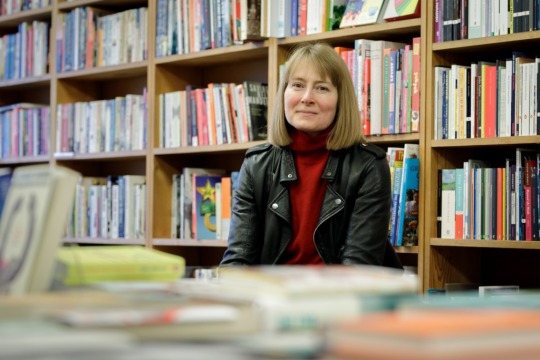
MIRANDA PEAKE TALKS TAKING THE HELM AT CHENER BOOKS AND WHY THE SHOP’S FAMOUS “NO CARDS, NO WRAPPING PAPER” POLICY STILL STANDS
WORDS: KATIE ALLEN; PHOTO: LIMA CHARLIE
Taking over a much-loved business can be tricky. It’s even more daunting when the business in question was run by one man for 40 years.
But that was the challenge that Miranda Peake – poet, artist and bookseller – grasped with both hands just seven months ago.
She is the relatively new owner of independent bookshop Chener Books, which was founded and run by local bookselling hero John Kennedy since 1978. It moved to its current location on Lordship Lane in 1983.
“At points I had doubts and thought, ‘Am I taking on too much?’ but it was good to think that John had made this work for 40 years and it would be so brilliant to carry that on,” says Miranda.
“And also people have so much affection for the shop. People in East Dulwich and the wider community really wanted it to continue.”
She took the helm in October last year. “It went well from the word go, which is really fortunate. I was really lucky to take over before Christmas, which is the busiest time for bookselling, and that made a huge difference.”
Long-term residents of East Dulwich might have known Miranda from Chener anyway. A resident of East Dulwich and Camberwell since she graduated in the late Nineties, she first worked in the shop for two years in the early 2000s.
Previously she had studied fine art and then for an MA, while working in other bookshops including Waterstone’s and the now-closed Borders on Oxford Street. She balanced working part-time at Chener with her career as an artist.
“I really loved it, especially after working in such large bookshops in town, and John was so generous,” she says. “He kind of completely gave over responsibility for ordering and day-to-day management to the people who worked in the shop.”
Eventually Miranda moved careers into arts administration, but it seemed that Chener Books had not yet forgotten her.
She had already started experimenting with writing, and eventually decided to leave her job to dedicate her time to it. She began an MA in creative writing a couple of years ago, “and that’s when books came back in the picture”, she recalls.
Miranda had popped into Chener to pay John a visit – and fortuitously he was looking for part-time staff. “I came full circle really!”
John was set to retire in summer 2018, but sadly passed away before he got a chance to enjoy his retirement. John and Miranda had already discussed her taking on the bookshop, and after he died, she began talking to his family about the possibility.
The sense of continuity was inspiring. “I think that was part of why I really wanted to do it, because John had done this amazing thing of keeping it running for 40 years,” she says. “I knew that he very much wanted the shop to continue.”
Over the past six months, Miranda has been digging through the – often surprising – books that are already on the shelves. “You realise how much independent bookshops are shaped by the people who own them,” she says.
“One of the things I love about the shop is that it is full of oddities that people have ordered through the 40 years of its life. Weird pockets of stuff like women murderers, all these books about torture. Somebody who worked here once must have loved these bizarre subjects. So it still has a lot of eccentricities in the stock.”
She adds: “[I love] working out what sells best and what people are interested in. It’s so enjoyable choosing stock, choosing things you hope will sell, and if they do it’s really wonderful.”
As a poet and member of the Hornet Press poetry collective, she has a particular passion for poetry. She has moved the poetry titles to a more prominent section, which has really boosted sales and attracted poetry-lovers to the shop.
Other top sellers have included the Michelle Obama memoir at Christmas, and less mainstream hits such as titles by independent press Fitzcarraldo Editions. “It makes me happy when we sell things from a small press, or you’re able to give a small press space in the shop. I think that’s really important.”
She has swapped the large central table for more moveable furniture to enable Chener to put on events, the most recent of which was with Christopher Mallory, a diplomat during the Cold War.
But one thing that has remained the same is the dedicated room for children’s books, and also – vitally – John’s “no cards, no wrapping paper” policy. She laughs when I ask about her comment in a previous edition of this paper that she would not be selling anything other than books.
Mentioning her support for nearby card shops, she adds: “[If I did that] I think John would probably come down and tell me off in person. I think it would be really out of character with the shop and everything that John built the shop to be.”
It’s testament to south-east London that there are a number of well-supported indie bookshops. “A lot of people come in and say, ‘I’d rather order a book through you than through Amazon’,” she says.
She feels similarly positive about ebooks. “People do still use Kindles of course, but I think the novelty has worn off, and my sense is that people use them when they have to, when they’re convenient, but the default is that people would buy a book. On both of those counts I feel like it’s a relatively good moment for bookshops.”
At first she found the switch from full-time office work to being on her own in the shop five days a week (it is also open at the weekends) “a bit lonely, but once you get to know people, now I’m just chatting away all day! One of the nicest things is that people come in and chat. It’s really nice that mums and dads bring their kids in.”
She adds: “I feel really at home here, even more so now I have this shop. I feel really embedded in the area.”
0 notes
Photo
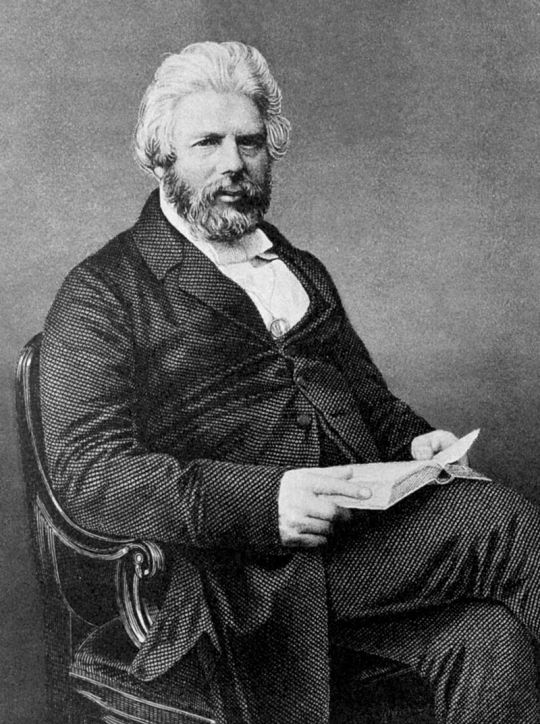
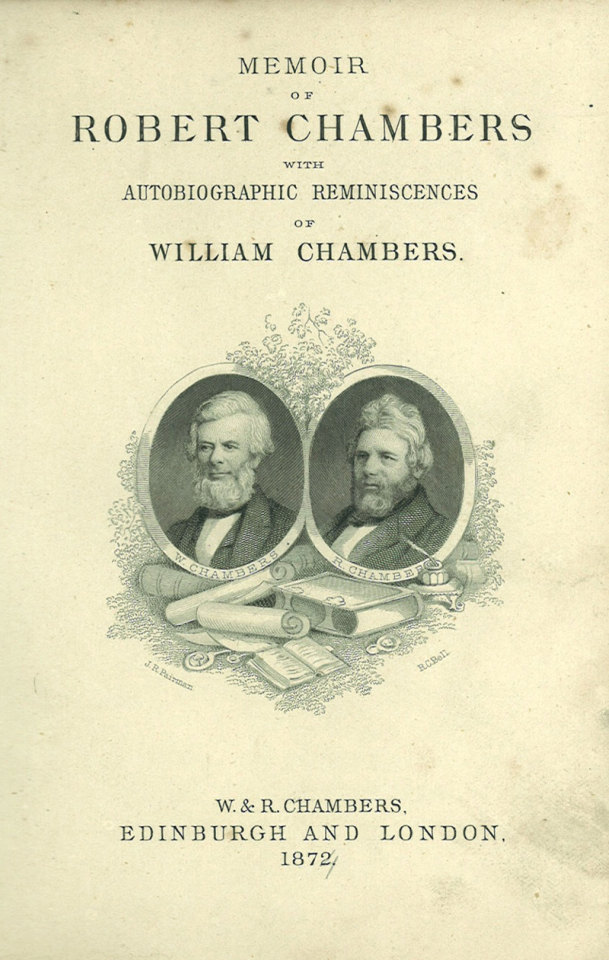

On 10th July 1802 Robert Chambers, the Scottish naturalist and publisher, was born.
I wonder how many of you out there either own, or have owned a Chambers dictionary? Well did you know that the two brothers, Robert and William Chambers founded the company that published the book also played a major part in the growth of 19th century writing and publishing in Scotland and the development of the city of Edinburgh.
William and Robert Chambers were part of a relatively prosperous Borders mill owning family with deep roots in Tweeddale. William the elder was born in 1800 and his brother Robert on this day, two years later.
Their father lost his business in 1814 and the family upped sticks and moved to Edinburgh. Life in the capital began in a tenement flat in Nicholson Street. It was a “second rate street home to other families with limited means.” They remained there for less than a year before moving to an even poorer area of the city.
William took up a job as an apprentice in a booksellers, his early jobs being cleaning and lighting the fire, preparing the oil lamps and running errands, but it put him in god stead for his oncoming years. He took lodgings in The West Port, his brother later joining him, but was jobless, William helped support his sibling, he then suggested Robert, using the last few books from his father’s house in Peebles open a small bookshop in Leith, the family business was born. Within a short time William also opened a bookshop close to his brother.
A small printing press was acquired and together the brothers turned to publishing. They printed, bound and published a range of books including 750 copies of the Songs of Robert Burns, a best-seller in 19th century Edinburgh.
It was perhaps inevitable that both would turn to writing and together they wrote and published the Kaleidoscope a fortnightly periodical. Half a century later William reflected on the struggle to produce the journal. “The mechanical execution of the literary serial sorely tested the powers of my little press which received sundry claspings of iron to strengthen it for the unexpected duty.” Although the Kaleidoscope didn’t last long, life was getting better. It was, “a small trial of one’s wings.”
Thanks to a commission from Walter Scott William and Robert moved home again as their business continued to develop. By 1832 the first edition of the Chambers Edinburgh Journal was published. It was an immediate and unprecedented success with 30,000 copies sold in Scotland and a further 20,000 in England. Initially Robert was only a contributor but after the 14th issue he became joint editor and W and R Chambers was founded.
I really should only be covering Robert in this post, but I have to tell you a bit about William, who rose to become Lord Provost of Edinburgh, in that position he helped save the life of a stray dog that was going to be rounded up and destroyed as he never had a license. Hearing of the poor dog William himself paid for the license, a collar for the dog and feeding bowl that can still be seen in The Museum of Edinburgh. Without this act of kindness we might not know the extraordinary tale of Greyfriars Bobby!
Anyways, back to we brother Robert. In 1844 Robert published, anonymously, the Vestiges of the Natural History of Creation, 15 years before Darwin’s Origin of the Species. It received very mixed reviews. One said that, “there was a fair chance of poisoning the fountains of science and sapping the foundations of religion.” Another took an opposing view by saying the book was like a, “breath of fresh air to workmen in a crowded factory.”
William and Robert Chambers achieved much in their lives but perhaps their greatest satisfaction came from the purchase of their Scottish Borders home 40 years after their father had been forced to give it up.
Although now owned by a multi-national the firm started in 1819, W. & R. Chambers Publishers still trades and is one of the foremost publishers of reference books in may ares including....
Dictionaries
Thesauruses
Language Reference
Subject Reference
School Range
Crosswords
Puzzles
Games
Phrasebooks
Adult Learners' Range.
Robert Chambers died on 17 March 1871 in St Andrews and is buried in the Cathedral burial ground in the interior of the old Church of St. Regulus, according to his wishes.
A memorial window remembers the brother in St Giles on The Royal Mile, Edinburgh as seen in the pic.
16 notes
·
View notes
Text
The first 20 hours -- how to learn anything | Josh Kaufman | TEDxCSU
New Post has been published on https://hititem.kr/the-first-20-hours-how-to-learn-anything-josh-kaufman-tedxcsu-6/
The first 20 hours -- how to learn anything | Josh Kaufman | TEDxCSU
Translator: Gustavo Rocha Reviewer: Marssi Draw hi everybody. Two 12 months in the past, my life transformed endlessly. My spouse Kelsey and that i welcomed our daughter Lela into the world. Now, becoming a parent is an effective experience. Your whole world alterations over night time. And your whole priorities alternate immediately. So quick that it makes it really intricate to method usually. Now, you additionally need to gain knowledge of a enormous quantity about being a mother or father like, for instance, learn how to dress your baby. (Laughter) This was new to me. That is an specific outfit, I thought this was a good inspiration. And even Lela is aware of that it’s no longer a just right notion. (Laughter) So there’s a lot to gain knowledge of and a lot craziness unexpectedly. And so as to add to the craziness, Kelsey and i each work from dwelling, we’re entrepreneurs, we run our possess firms. So, Kelsey develops guides on-line for yoga lecturers. I am an author. And so, i am working from dwelling, Kelsey’s working from house. We now have an youngster and we’re looking to make certain that the whole lot will get accomplished that wishes completed.And lifestyles is rather, relatively busy. And a few weeks into this mighty experience, when the sleep deprivation rather kicked in, like round week eight, I had this concept, and it was once the identical idea that mum and dad throughout the ages, internationally, everybody has had this inspiration, which is: i am in no way going to have free time ever once more. (Laughter) anyone mentioned it can be actual. It is not exactly proper, nevertheless it feels rather, rather authentic in that second. And this was rather disconcerning to me, in view that one of the crucial matters that I enjoy greater than whatever else is finding out new matters. Getting focused on whatever and diving in and fiddling around and learning via trial and error.And finally fitting pretty good at whatever. And with out this free time, I failed to know how I was once ever going to do this ever once more. And so, i’m a big geek, I need to keep learning matters, I wish to keep developing. And so what I’ve decided to do used to be, go to the library, and go to the bookshop, and look at what research says about how we be trained and how we gain knowledge of rapidly. And i read a bunch of books, I read a bunch of web sites. And tried to answer this question, how lengthy does it take to collect a brand new ability? You know what I discovered? 10,000 hours! Any person ever heard this? It takes 10,000 hours. If you want to study some thing new, if you wish to be excellent at it, it’ll take 10,000 hours to get there. And i read this in publication after book, in website after website. And my intellectual experience of reading all of these things was once like: No!! I wouldn’t have time! I don’t have 10,000 hours.I’m certainly not going to be in a position to study something new. Ever again. (Laughter) but that is no longer genuine. So, 10,000 hours, just to give you a difficult order of magnitude, 10,000 hours is a full-time job for five years. That’s a long time. And we now have all had the experience of finding out something new, and it did not take us at any place practically that amount of time, correct? So, what’s up? There may be something kinda funky going on right here. What the study says and what we anticipate, and have experiences, they don’t fit up. And what I located, this is the wrinkle: the 10,000 hour rule got here out of reports of educated-stage efficiency. There’s a professor at Florida State college, his identify is ok. Anders Ericsson. He’s the originator of the ten,00 hour rule. And where that got here from is, he studied authentic athletes, world class musicians, chess grand masters. All of this ultra competitive humans in ultra-excessive performing fields. And he tried to determine how lengthy does it take to get to the top of those forms of fields. And what he located is, the extra deliberate follow, the more time that those participants spend training the elements of something it is that they do, the extra time you spend, the simpler you get.And the folks at the tippy high of their fields put in around 10,000 hours of observe. Now, we had been speaking about the recreation of phone just a little bit earlier. This is what occurred: an author via the name of Malcolm Gladwell wrote a guide in 2007 called "Outliers: The Story of Success", and the valuable piece of that booklet used to be the 10,000 hour rule. Observe lots, apply well, and you’ll do highly good, you will attain the highest of your field. So, the message, what Dr. Ericsson was once absolutely announcing is, it takes 10,000 hours to get on the high of an ultra competitive subject in an awfully slender subject, that is what that means. However here’s what happened: ever since Outliers came out, instantly came out, reached the top of nice seller lists, stayed there for three solid months. Out of the blue the 10,000 hour rule was in all places. And a society-huge recreation of cellphone started to be played. So this message, it takes 10,000 hours to reach the top of an extremely competitive field, grew to become, it takes 10,000 hours to emerge as an expert at something, which grew to become, it takes 10,000 hours to become good at whatever, which became, it takes 10,000 hours to gain knowledge of anything.But that final assertion, it takes 10,000 hours to be trained whatever, shouldn’t be true. It can be now not actual. So, what the study absolutely says — I spent quite a lot of time here on the CSU library in the cognitive psychology stacks ‘motive i am a geek. And when you clearly seem at the reviews of talent acquisition, you see again and again a graph like this. Now, researchers, whether they’re learning a motor ability, something you do physically or a mental ability, they like to learn matters that they are able to time. ‘rationale that you could quantify that, proper? So, they are going to supply research members a little bit challenge, whatever that requires physical arrangement, or anything that requires studying slightly mental trick, and they’ll time how lengthy a participant takes to entire the ability. And this is what this graph says, when you begin — so when researchers gave contributors a mission, it took them a relatively very long time, ‘intent it was once new and they had been horrible.With a bit of little bit of follow, they get higher and better and better. And that early part of apply is rather, particularly effective. Persons get excellent at things with just a bit bit of follow. Now, what’s intriguing to note is that, for knowledge that we want to be taught for ourselves, we don’t care a lot about time, proper? We simply care about how good we’re, some thing excellent happens to mean. So if we relabel performance time to how excellent you might be, the graph flips, and also you get his noted and broadly recognized, this is the educational curve. And the story of the training curve is while you , you’re grossly incompetent and you are aware of it, right? (Laughter) With a bit bit of follow, you get fairly just right, fairly fast. In order that early degree of growth is rather fast. After which at a detailed factor you reach a plateau, and the following video games become much tougher to get, they take more time to get.Now, my question is, i need that, proper? How long does it take from opening something and being grossly incompetent and knowing it to being moderately good? In optimistically, as short a interval of time as possible. So, how long does that take? This is what my study says: 20 hours. That is it. That you can go from realizing nothing about any talent that you could feel of. Want to learn a language? Wish to be trained how to attract? Wish to gain knowledge of juggle flaming chainsaws? (Laughter) when you put 20 hours of targeted deliberate observe into that thing, you’re going to be astounded. Astounded at how excellent you’re. 20 hours is possible, that is about forty five minutes a day for roughly a month. Even skipping a pair days, right here and there. 20 hours isn’t that difficult to accumulate. Now, there may be a approach to doing this. Due to the fact it can be now not like that you would be able to just begin fiddling round for approximately 20 hours and anticipate these enormous enhancements. There may be a solution to apply intelligently. There’s a solution to apply successfully, so as to be certain that you make investments these 20 hours in essentially the most strong method that you in all probability can. And this is the procedure, it applies to something: the primary is to deconstruct the ability.Decide exactly what you wish to have to be able to do when you are accomplished, and then look into the skill and ruin it down into smaller pieces. Most of the things that we feel of as capabilities are clearly colossal bundles of talents that require all different types of exceptional matters. The extra that you can smash aside the talent, the more you’re equipped to come to a decision, what are the ingredients of this talent that might really help me get to what i would like? And then which you can observe these first.And if you happen to practice the primary things first, you can be able to toughen your performance the least bit period of time viable. The second is, be taught sufficient to self correct. So, get three to 5 assets about what it’s you are trying to learn. Could be booklet, could be DVDs, could be guides, would be some thing. But do not use those so as to procrastinate on observe. I know I do that, correct? Get like 20 books concerning the matter, like, "i will begin studying application a laptop after I entire these 20 books".No. That is procrastination. What you want to do is learn just sufficient you could clearly practice and self correct or self edit as you practice. So the training becomes a method of getting higher at noticing when you’re making a mistake and then doing anything a little exceptional. The third is to do away with barriers to practice. Distractions, television, web. All of these things that get in the best way of you certainly sitting down and doing the work. And the more you are equipped to use just a little bit of strength of mind to remove the distractions which can be keeping you from practising, the extra possible you’re to without a doubt sit down down and follow, right? And the fourth is to observe for at least 20 hours. Now, most potential have what I call a frustration barrier. You know, the grossly-incompetent- and-realizing-it part? That is rather, relatively frustrating. We do not like to feel silly. And feeling stupid is a barrier to us honestly sitting down and doing the work. So, by using pre-committing to training whatever it is that you wish to have to do for a minimum of 20 hours, you’re going to be capable to overcome that initial frustration barrier and keep on with the practice lengthy sufficient to truely reap the rewards.That’s it! It can be not rocket science. 4 very simple steps that you should utilize to study some thing. Now, that is handy to speak about in concept, but it surely’s extra fun to talk about in follow. So one of the crucial matters that I’ve desired to be trained how you can do for a very long time is play the ukulele. Has anybody visible Jake Shimabukuro’s TEDTalk the place he plays the ukulele and makes it sound like — he’s like a ukulele god. It can be effective. I saw it, I used to be like, "that’s so cool!" it’s the sort of neat instrument. I might fairly like to study easy methods to play. And so I decided that to test this theory I wanted to place 20 hours into practising ukulele and see the place it obtained.And so the first thing about enjoying the ukulele is, with a view to practice, you must have one, correct? So, I got an ukulele and — My beautiful assistant? (Laughter) thanks sir. I think i would like the chord here. It’s now not just an ukulele, it is an electrical ukulele. (Laughter) Yeah. So, the first couple hours are similar to the first couple hours of some thing. You must get the instruments that you are utilizing to observe. You must ensure they may be on hand. My ukulele failed to include strings hooked up. I had to figure out put those on. Like, that is type of primary, proper? And learning tune, finding out ensure that the entire things that have got to be carried out as a way to start practicing get performed, proper? Now, one of the most things after I used to be competent to genuinely training used to be I looked in on-line databases and songbooks for tips on how to play songs. And they say, okay, ukuleles, that you could play more than one string at a time, so you could play chords, that is cool, you are accompanying your self, yay you. (Laughter) And once I started watching at songs, I had an ukulele chord publication that had like hundreds of chords.Looking at this and "Wow, that is intimidating". But while you look at the actual songs, you see the equal chords again and again, correct? Because it turns out, playing the ukulele is type of like doing anything, there is a very small set of things which are quite essential and tactics that you’ll be able to use all the time. And in most songs you can use four, maybe five chords, and that’s it, that is the song. You don’t have to comprehend hundreds, as long as you recognize the four or the five. So, whilst I was once doing my study, I observed a distinct little medley of pop songs with the aid of a band known as Axis of brilliant. (Whistles) — somebody knows it. — And what Axis of first-rate says is you can be trained, or that you could play frequently any pop song of the previous 5 decades, if you understand 4 chords, and those chords are G, D, Em and C.Four chords pump out every pop track ever, right? So I concept, that is cool! I wish to play each pop song ever. (Laughter) So, that used to be the first tune I decided to learn, and that i would like to in reality share it with you. Equipped? (Applause) alright. (song) (Singing) just a small town girl, living in a lonely world, she took the midnight coach going anywhere. I heard that you just settled down, (Laughter) that you just found a lady, that you’re married now.Every night time in my dreams (Laughter) I see you, I feel you, that is how i do know you go on. (Laughter) I is not going to hesitate no more, no more. It cannot wait, i’m yours. ‘motive you have been mighty, we did robust matters. If I would, then i would, i would go wherever you will — can you feel the love tonight. (Laughter) I are not able to live with or with out you. Once I in finding myself — after I in finding myself in occasions of hindrance, mom Mary involves me, typically I think like I should not have companion. No girl, no cry. Yeah mama, this obviously is a dream. I come from a land down underneath. (Laughter) as soon as a jolly swagman camped via a billabong. Hi there, I simply met you, and this is loopy, (Laughter) however here’s my number, so call me whats up attractive lady, op, op, op, op, oppan gangnam variety. (Laughter) it’s time to say goodbye. Closing time, every new opening comes from another opening’s end. (Singing and tune ends) (Applause) thanks, thank you. I really like that music. (Laughter) And i have a secret to share with you. So, through enjoying that song for you, I simply hit my twentieth hour of practicing the ukulele.(Applause) thank you. And so it is powerful, generally anything which you could suppose of, what do you want to do. The main barrier to be trained anything new just isn’t intellectual, it’s not the system of you learning a bunch of little recommendations or tips or matters. The foremost barrier’s emotional. We’re scared. Feeling stupid doesn’t believe excellent, within the starting of learning whatever new you consider rather silly. So the predominant barrier’s not mental, it is emotional. But put 20 hours into whatever. It doesn’t matter. What do you wish to have to gain knowledge of? Do you want to be taught a language? Wish to learn the way to prepare dinner? Wish to be trained how to draw? What turns you on? What lights you up? Exit and do that factor. It only takes 20 hours.Have enjoyable. (Applause) .
0 notes
Text
The first 20 hours -- how to learn anything | Josh Kaufman | TEDxCSU
New Post has been published on https://hititem.kr/the-first-20-hours-how-to-learn-anything-josh-kaufman-tedxcsu-6/
The first 20 hours -- how to learn anything | Josh Kaufman | TEDxCSU
Translator: Gustavo Rocha Reviewer: Marssi Draw hi everybody. Two 12 months in the past, my life transformed endlessly. My spouse Kelsey and that i welcomed our daughter Lela into the world. Now, becoming a parent is an effective experience. Your whole world alterations over night time. And your whole priorities alternate immediately. So quick that it makes it really intricate to method usually. Now, you additionally need to gain knowledge of a enormous quantity about being a mother or father like, for instance, learn how to dress your baby. (Laughter) This was new to me. That is an specific outfit, I thought this was a good inspiration. And even Lela is aware of that it’s no longer a just right notion. (Laughter) So there’s a lot to gain knowledge of and a lot craziness unexpectedly. And so as to add to the craziness, Kelsey and i each work from dwelling, we’re entrepreneurs, we run our possess firms. So, Kelsey develops guides on-line for yoga lecturers. I am an author. And so, i am working from dwelling, Kelsey’s working from house. We now have an youngster and we’re looking to make certain that the whole lot will get accomplished that wishes completed.And lifestyles is rather, relatively busy. And a few weeks into this mighty experience, when the sleep deprivation rather kicked in, like round week eight, I had this concept, and it was once the identical idea that mum and dad throughout the ages, internationally, everybody has had this inspiration, which is: i am in no way going to have free time ever once more. (Laughter) anyone mentioned it can be actual. It is not exactly proper, nevertheless it feels rather, rather authentic in that second. And this was rather disconcerning to me, in view that one of the crucial matters that I enjoy greater than whatever else is finding out new matters. Getting focused on whatever and diving in and fiddling around and learning via trial and error.And finally fitting pretty good at whatever. And with out this free time, I failed to know how I was once ever going to do this ever once more. And so, i’m a big geek, I need to keep learning matters, I wish to keep developing. And so what I’ve decided to do used to be, go to the library, and go to the bookshop, and look at what research says about how we be trained and how we gain knowledge of rapidly. And i read a bunch of books, I read a bunch of web sites. And tried to answer this question, how lengthy does it take to collect a brand new ability? You know what I discovered? 10,000 hours! Any person ever heard this? It takes 10,000 hours. If you want to study some thing new, if you wish to be excellent at it, it’ll take 10,000 hours to get there. And i read this in publication after book, in website after website. And my intellectual experience of reading all of these things was once like: No!! I wouldn’t have time! I don’t have 10,000 hours.I’m certainly not going to be in a position to study something new. Ever again. (Laughter) but that is no longer genuine. So, 10,000 hours, just to give you a difficult order of magnitude, 10,000 hours is a full-time job for five years. That’s a long time. And we now have all had the experience of finding out something new, and it did not take us at any place practically that amount of time, correct? So, what’s up? There may be something kinda funky going on right here. What the study says and what we anticipate, and have experiences, they don’t fit up. And what I located, this is the wrinkle: the 10,000 hour rule got here out of reports of educated-stage efficiency. There’s a professor at Florida State college, his identify is ok. Anders Ericsson. He’s the originator of the ten,00 hour rule. And where that got here from is, he studied authentic athletes, world class musicians, chess grand masters. All of this ultra competitive humans in ultra-excessive performing fields. And he tried to determine how lengthy does it take to get to the top of those forms of fields. And what he located is, the extra deliberate follow, the more time that those participants spend training the elements of something it is that they do, the extra time you spend, the simpler you get.And the folks at the tippy high of their fields put in around 10,000 hours of observe. Now, we had been speaking about the recreation of phone just a little bit earlier. This is what occurred: an author via the name of Malcolm Gladwell wrote a guide in 2007 called "Outliers: The Story of Success", and the valuable piece of that booklet used to be the 10,000 hour rule. Observe lots, apply well, and you’ll do highly good, you will attain the highest of your field. So, the message, what Dr. Ericsson was once absolutely announcing is, it takes 10,000 hours to get on the high of an ultra competitive subject in an awfully slender subject, that is what that means. However here’s what happened: ever since Outliers came out, instantly came out, reached the top of nice seller lists, stayed there for three solid months. Out of the blue the 10,000 hour rule was in all places. And a society-huge recreation of cellphone started to be played. So this message, it takes 10,000 hours to reach the top of an extremely competitive field, grew to become, it takes 10,000 hours to emerge as an expert at something, which grew to become, it takes 10,000 hours to become good at whatever, which became, it takes 10,000 hours to gain knowledge of anything.But that final assertion, it takes 10,000 hours to be trained whatever, shouldn’t be true. It can be now not actual. So, what the study absolutely says — I spent quite a lot of time here on the CSU library in the cognitive psychology stacks ‘motive i am a geek. And when you clearly seem at the reviews of talent acquisition, you see again and again a graph like this. Now, researchers, whether they’re learning a motor ability, something you do physically or a mental ability, they like to learn matters that they are able to time. ‘rationale that you could quantify that, proper? So, they are going to supply research members a little bit challenge, whatever that requires physical arrangement, or anything that requires studying slightly mental trick, and they’ll time how lengthy a participant takes to entire the ability. And this is what this graph says, when you begin — so when researchers gave contributors a mission, it took them a relatively very long time, ‘intent it was once new and they had been horrible.With a bit of little bit of follow, they get higher and better and better. And that early part of apply is rather, particularly effective. Persons get excellent at things with just a bit bit of follow. Now, what’s intriguing to note is that, for knowledge that we want to be taught for ourselves, we don’t care a lot about time, proper? We simply care about how good we’re, some thing excellent happens to mean. So if we relabel performance time to how excellent you might be, the graph flips, and also you get his noted and broadly recognized, this is the educational curve. And the story of the training curve is while you , you’re grossly incompetent and you are aware of it, right? (Laughter) With a bit bit of follow, you get fairly just right, fairly fast. In order that early degree of growth is rather fast. After which at a detailed factor you reach a plateau, and the following video games become much tougher to get, they take more time to get.Now, my question is, i need that, proper? How long does it take from opening something and being grossly incompetent and knowing it to being moderately good? In optimistically, as short a interval of time as possible. So, how long does that take? This is what my study says: 20 hours. That is it. That you can go from realizing nothing about any talent that you could feel of. Want to learn a language? Wish to be trained how to attract? Wish to gain knowledge of juggle flaming chainsaws? (Laughter) when you put 20 hours of targeted deliberate observe into that thing, you’re going to be astounded. Astounded at how excellent you’re. 20 hours is possible, that is about forty five minutes a day for roughly a month. Even skipping a pair days, right here and there. 20 hours isn’t that difficult to accumulate. Now, there may be a approach to doing this. Due to the fact it can be now not like that you would be able to just begin fiddling round for approximately 20 hours and anticipate these enormous enhancements. There may be a solution to apply intelligently. There’s a solution to apply successfully, so as to be certain that you make investments these 20 hours in essentially the most strong method that you in all probability can. And this is the procedure, it applies to something: the primary is to deconstruct the ability.Decide exactly what you wish to have to be able to do when you are accomplished, and then look into the skill and ruin it down into smaller pieces. Most of the things that we feel of as capabilities are clearly colossal bundles of talents that require all different types of exceptional matters. The extra that you can smash aside the talent, the more you’re equipped to come to a decision, what are the ingredients of this talent that might really help me get to what i would like? And then which you can observe these first.And if you happen to practice the primary things first, you can be able to toughen your performance the least bit period of time viable. The second is, be taught sufficient to self correct. So, get three to 5 assets about what it’s you are trying to learn. Could be booklet, could be DVDs, could be guides, would be some thing. But do not use those so as to procrastinate on observe. I know I do that, correct? Get like 20 books concerning the matter, like, "i will begin studying application a laptop after I entire these 20 books".No. That is procrastination. What you want to do is learn just sufficient you could clearly practice and self correct or self edit as you practice. So the training becomes a method of getting higher at noticing when you’re making a mistake and then doing anything a little exceptional. The third is to do away with barriers to practice. Distractions, television, web. All of these things that get in the best way of you certainly sitting down and doing the work. And the more you are equipped to use just a little bit of strength of mind to remove the distractions which can be keeping you from practising, the extra possible you’re to without a doubt sit down down and follow, right? And the fourth is to observe for at least 20 hours. Now, most potential have what I call a frustration barrier. You know, the grossly-incompetent- and-realizing-it part? That is rather, relatively frustrating. We do not like to feel silly. And feeling stupid is a barrier to us honestly sitting down and doing the work. So, by using pre-committing to training whatever it is that you wish to have to do for a minimum of 20 hours, you’re going to be capable to overcome that initial frustration barrier and keep on with the practice lengthy sufficient to truely reap the rewards.That’s it! It can be not rocket science. 4 very simple steps that you should utilize to study some thing. Now, that is handy to speak about in concept, but it surely’s extra fun to talk about in follow. So one of the crucial matters that I’ve desired to be trained how you can do for a very long time is play the ukulele. Has anybody visible Jake Shimabukuro’s TEDTalk the place he plays the ukulele and makes it sound like — he’s like a ukulele god. It can be effective. I saw it, I used to be like, "that’s so cool!" it’s the sort of neat instrument. I might fairly like to study easy methods to play. And so I decided that to test this theory I wanted to place 20 hours into practising ukulele and see the place it obtained.And so the first thing about enjoying the ukulele is, with a view to practice, you must have one, correct? So, I got an ukulele and — My beautiful assistant? (Laughter) thanks sir. I think i would like the chord here. It’s now not just an ukulele, it is an electrical ukulele. (Laughter) Yeah. So, the first couple hours are similar to the first couple hours of some thing. You must get the instruments that you are utilizing to observe. You must ensure they may be on hand. My ukulele failed to include strings hooked up. I had to figure out put those on. Like, that is type of primary, proper? And learning tune, finding out ensure that the entire things that have got to be carried out as a way to start practicing get performed, proper? Now, one of the most things after I used to be competent to genuinely training used to be I looked in on-line databases and songbooks for tips on how to play songs. And they say, okay, ukuleles, that you could play more than one string at a time, so you could play chords, that is cool, you are accompanying your self, yay you. (Laughter) And once I started watching at songs, I had an ukulele chord publication that had like hundreds of chords.Looking at this and "Wow, that is intimidating". But while you look at the actual songs, you see the equal chords again and again, correct? Because it turns out, playing the ukulele is type of like doing anything, there is a very small set of things which are quite essential and tactics that you’ll be able to use all the time. And in most songs you can use four, maybe five chords, and that’s it, that is the song. You don’t have to comprehend hundreds, as long as you recognize the four or the five. So, whilst I was once doing my study, I observed a distinct little medley of pop songs with the aid of a band known as Axis of brilliant. (Whistles) — somebody knows it. — And what Axis of first-rate says is you can be trained, or that you could play frequently any pop song of the previous 5 decades, if you understand 4 chords, and those chords are G, D, Em and C.Four chords pump out every pop track ever, right? So I concept, that is cool! I wish to play each pop song ever. (Laughter) So, that used to be the first tune I decided to learn, and that i would like to in reality share it with you. Equipped? (Applause) alright. (song) (Singing) just a small town girl, living in a lonely world, she took the midnight coach going anywhere. I heard that you just settled down, (Laughter) that you just found a lady, that you’re married now.Every night time in my dreams (Laughter) I see you, I feel you, that is how i do know you go on. (Laughter) I is not going to hesitate no more, no more. It cannot wait, i’m yours. ‘motive you have been mighty, we did robust matters. If I would, then i would, i would go wherever you will — can you feel the love tonight. (Laughter) I are not able to live with or with out you. Once I in finding myself — after I in finding myself in occasions of hindrance, mom Mary involves me, typically I think like I should not have companion. No girl, no cry. Yeah mama, this obviously is a dream. I come from a land down underneath. (Laughter) as soon as a jolly swagman camped via a billabong. Hi there, I simply met you, and this is loopy, (Laughter) however here’s my number, so call me whats up attractive lady, op, op, op, op, oppan gangnam variety. (Laughter) it’s time to say goodbye. Closing time, every new opening comes from another opening’s end. (Singing and tune ends) (Applause) thanks, thank you. I really like that music. (Laughter) And i have a secret to share with you. So, through enjoying that song for you, I simply hit my twentieth hour of practicing the ukulele.(Applause) thank you. And so it is powerful, generally anything which you could suppose of, what do you want to do. The main barrier to be trained anything new just isn’t intellectual, it’s not the system of you learning a bunch of little recommendations or tips or matters. The foremost barrier’s emotional. We’re scared. Feeling stupid doesn’t believe excellent, within the starting of learning whatever new you consider rather silly. So the predominant barrier’s not mental, it is emotional. But put 20 hours into whatever. It doesn’t matter. What do you wish to have to gain knowledge of? Do you want to be taught a language? Wish to learn the way to prepare dinner? Wish to be trained how to draw? What turns you on? What lights you up? Exit and do that factor. It only takes 20 hours.Have enjoyable. (Applause) .
0 notes